






































Your local business news brought to you by WHATCOM BUSINESS ALLIANCE

PUBLISHER Whatcom Business Alliance





EXECUTIVE DIRECTOR Barbara Chase
EDITOR Matthew Anderson, Bellingham PR & Communications
CONTRIBUTING Heather Lea
WRITERS Tamara Anderson-Loucks
Tara Gilligan Reimer
Lorraine Wilde
GUEST COLUMNISTS Mark Harmsworth
Diane Kamionka
Jennifer Noveck
Madison Price
Dann Mead Smith
ART DIRECTOR Whitney Pearce
PHOTOGRAPHY Sattva Photo
Cover Photo by Sattva Photo

WBA BOARD OF DIRECTORS:
BOARD CHAIR: Pam Brady, Director NW Gov’t & Public Affairs, bp Cherry Point
EXECUTIVE COMMITTEE: John Huntley, President/ CEO, Mills Electric Inc.; Doug Thomas, President/CEO, Bellingham Cold Storage; Josh Turrell, Partner, Larson Gross PLLC; Josh Wright, VP/Broker, Bell-Anderson Insurance
BOARD OF DIRECTORS: Tyler Byrd, CEO, Red Rokk Interactive; Jane Carten, President, Saturna Capital; Bryant Engebretson, Managing Principal, Tradewinds Capital; Jon Ensch, Commercial Banking Officer, Peoples Bank; Mitch Faber, Partner, Adelstein Sharpe & Serka, Jim Haupt, General Manager, Hotel Bellwether; Sandy Keathley, Former Owner, K & K Industries; Tony Larson, Founder, WBA; Sarah Rothenbuhler Owner/CEO, Birch Equipment; Patrick Schuppert, Commercial Banking Relationship Manager, Wells Fargo; Carryn Vande Griend, Government Affairs
Representative, PSE; Billy VanZanten, CEO, Western Refinery Services
For editorial comments and suggestions, write info@whatcombusinessalliance.com. The magazine is published bimonthly at 1225 Roeder Ave., Ste. 108, Bellingham WA 98225. (360) 746-0418. Yearly subscription rate is $25 (US). For digital subscription, visit businesspulse.com. Entire contents copyrighted ©2023 Business Pulse. All rights reserved.
POSTMASTER: Send address changes to Business Pulse, 2950 Newmarket St., #101-173, Bellingham WA 98226
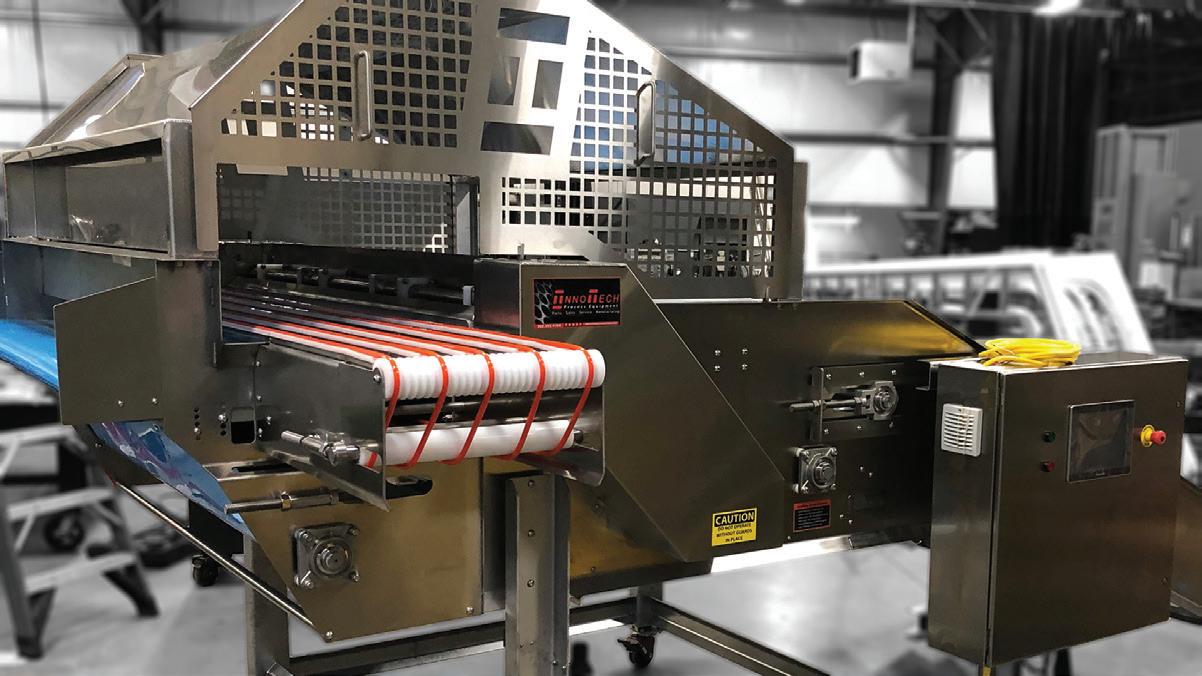




12 THE CANDIDATES. THE QUESTIONS. THE RESPONSES. Read candidate positions on some of the key issues facing your business and Whatcom County and Bellingham in general.
19 PLANTAGE EXPANDS TO COMMERCIAL KITCHEN

The space allows Chris Wilson to create high-end, plant-based cuisine that even more families can enjoy in their own homes.
25 3DX INDUSTRIES INVESTS BIG IN 3D METAL PRINTING
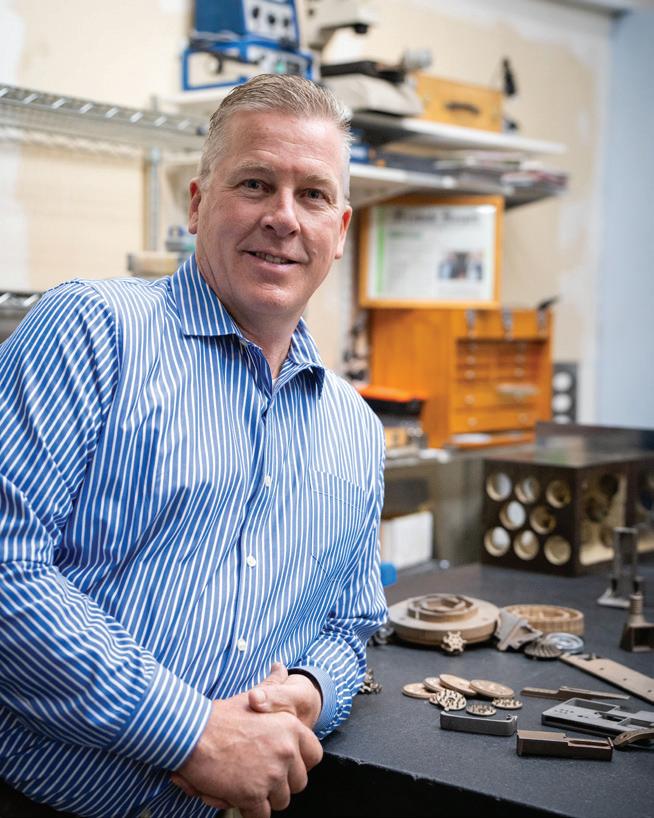
Staying on the cutting edge of technology and business makes plans of aggressive expansion in coming years seem possible.
29 BUSINESS IN WHATCOM
Innovative thinking from experts for business startups and expansions — and why Whatcom is just like everyone else, in spite of being special.
34 ASPHALT NORTHWEST
Success in the paving industry is built on relationships — past and present.
41 PERSONALLY SPEAKING
Meet Kevin Ryan, executive director of Brigadoon Service Dogs, and learn more about this program that has placed over 100 service dogs since 2004.

COLUMNS
45 7 strategies for planning in changing economic times
47 Why raising the minimum wage would actually reduce incomes
49 Skills to analyze the data that will build your business
51 Lessons from the Nooksack River flood of 2021



Think back to the last time we elected a county executive in Whatcom County. In many ways, the fall of 2019 seems like a lifetime ago. Imagine going to get a coffee in downtown Bellingham having not heard of the word “COVID.” It’s hard to imagine how good we had it — and how little we appreciated that.
On the other hand, the fall of 2019 seems like yesterday. Though the world is different, in many ways, it seems like we have been trapped in the same nightmare for almost half a decade. It’s a nightmare in which local politicians view themselves as enforcers of national political priorities rather than as advocates and defenders of the communities that elected them. It’s a nightmare in which victims are portrayed as criminals and criminals are portrayed as victims. It’s a nightmare in which homeless camps are prioritized and protected while families and neighborhoods are left to fend for themselves.
That might sound like a sharp political take or one driven by partisanship. It isn’t. The data speaks for itself. According to the Whatcom County Sheriff’s Office, since July 2021 there has been a 22.7% increase in aggravated
assaults, a 38.5% increase in assaults on law enforcement and a 300% increase in drive-by shootings. Those numbers aren’t declining, either. Each category has seen increases in 2023.
While that data focuses primarily on unincorporated areas of the county, the picture in Whatcom County’s cities is just as bleak. From 2019 to 2021, aggravated assaults rose by 38.7% in Bellingham. Simple assault increased by 10.4%. Robberies jumped by 67.9%, and motor vehicle theft grew by 59%.
The data, as horrific as it is, doesn’t even begin to capture the lived experience of what it is like to run a business in this environment. In a report by KING 5 in June, Boundary Bay Brewery owner Janet Lightner said, “We’ve had vehicles stolen, bicycles stolen and propane tanks stolen. There are altercations with houseless folks in the middle of the night. One of our workers was threatened with a can of gasoline. A person started a fire in our alley.”
When people must dodge downtown Bellingham to avoid being robbed or set on fire — or both — we have crossed the Rubicon. Any ideology, no matter how good it sounds on paper, that drastically increases your likelihood of being a victim of a drive-by shooting, of being robbed,
or of being forced to close your small business when theft suddenly becomes legal is not compassionate at all.
Fortunately, we have the opportunity and the obligation to exercise our right to fix what’s broken. A 67.9% increase in robberies in just two years is a manmade disaster — and a potentially lethal failure to lead. It goes beyond issues of partisanship or ideology. People have a right not to be robbed. People have a right to visit their downtown without being assaulted. People have a right to visit their city hall or the town library without having to worry about people wielding hatchets.
In the end, we should evaluate local elected officials based on one simple criterion: Is your community better than it was when you started your term? The candidates elected in the fall of 2019 certainly could not have predicted the tide of events that was about to roll in. Blaming local politicians for COVID-19, the crime wave and the homelessness crisis isn’t completely fair.
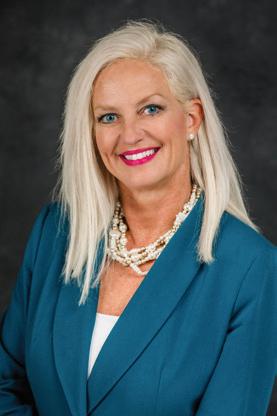
But they didn’t have to lean into it.
They didn’t have to try to solve local problems with national narratives, but that’s exactly what has happened.
In this issue, we look at the upcoming elections with a critical eye. We do this through the lens of local business,
which has suffered the brunt of so much of the insanity of the past four years — but we also do this through the lens of being residents of this county. Bluntly, our neighbors and friends are being hurt. People we agree with are being hurt. People we disagree with are being hurt. The system that was supposed to protect all of us has failed badly, and that’s not an opinion. That is a data-driven fact. The recent failed attempt to propose legislative action to change the office of sheriff to an appointed post is an example of how fractured our local administration is.
In this issue of Business Pulse, we asked the candidates running for key local positions a series of important questions to determine how they will address issues facing Whatcom County. It is disappointing, to say the least, that some candidates declined to participate and let our community know their proposals. Read about the two initiatives that the city of Bellingham will decide on in November. Pay particular attention to the proposed initiative to increase the local minimum wage significantly above the state minimum wage.
This fall, let’s exercise our right as Americans to fix what’s broken. Let’s exercise our obligation to be our brother’s keeper and stop more people from becoming victims of a deeply broken system. Let’s hold our officials accountable for what is happening to our beautiful county. I hope you enjoy this special issue of Business Pulse. Please make sure to vote by Nov. 7!




Tonja Myers has been named the executive director of Christian Health Care Center in Lynden, assuming many of the duties previously carried out by former CEO Patrick O’Neill. The role of executive director is a newly created role designed to consolidate administrative and leadership duties.
Myers has been a licensed administrator in the long-term care industry for 35 years and has a great deal of experience managing staff and operations. She joined CHCC as an administrator in 2015.
CHCC, like the entire long-term care industry, was hit hard during the COVID-19 pandemic. Some care centers closed their doors, and others were swallowed up by profit-focused investment firms. CHCC has the capacity to care for 142 people, but pandemic operations (lack of staff, cautious admissions) and the current business climate dropped that number to an average of 87 in 2023.
Myers and the CHCC board of trustees continue to explore ways to maintain CHCC’s ability to operate as a local and independently owned nonprofit — something that is becoming increasingly rare. Goals for 2023 and beyond include hiring more nursing staff and increasing the number of people receiving care at CHCC to pre-pandemic levels.
For more information about CHCC, visit chcclynden.org/.
Dana Weber, who has more than 20 years of experience in the hospitality industry, recently was appointed general manager of the Four Points by Sheraton Bellingham Hotel & Conference Center.
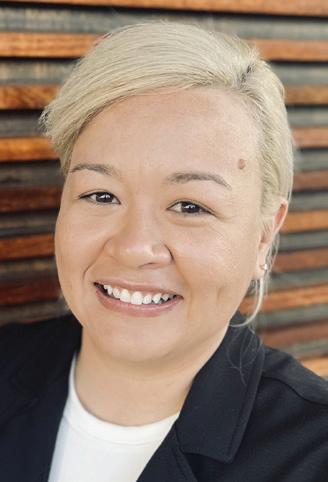


Most recently, Weber had been general manager of the Best Western Plus Bellingham Airport since 2018. He previously worked at Four Points by Sheraton Bellingham Hotel & Conference Center from 2006 to 2018, rising to assistant general manager. Weber is the chair of the Bellingham Whatcom County Tourism Board, the president of the Bellingham Whatcom County Lodging Association and a board member of the Bellingham Regional Chamber of Commerce.
Visit www.FourPointsBellingham.com for more information
Kelsey Gates has joined RMC Architects as a project manager. Her Bellingham roots, along with her time spent in Seattle while earning her Bachelor of Arts in architecture from the University of Washington, have given her a deep understanding of the local community and region. She believes this familiarity strengthens her architectural practice.
Gates will be working on multiple community college projects in her
new role, including several remodels for Bellingham Technical College, Whatcom Community College and Skagit Valley College. She also is working on the new Pioneer Pavilion project in Ferndale, the city of Bellingham Public Works expansion, Lummi Salish Village and the Whatcom Community Foundation’s Millworks 2 at the Bellingham Waterfront. Learn more about RMC Architects at www.rmcarchitects.com.
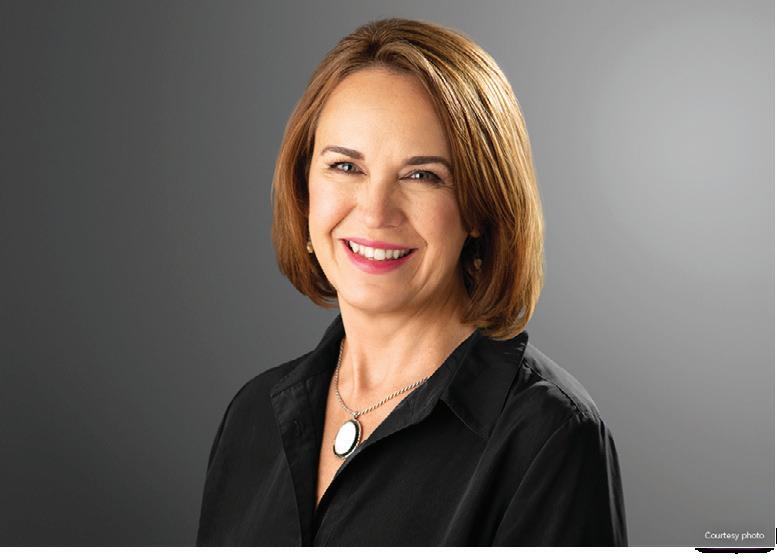

VSH CPAs announced that Sooraj Sall has obtained the Certified Valuation Analyst designation through the National Association of Certified Valuators and Analysts.
The designation is the only valuation credential accredited by both the National Commission for Certifying Agencies (the accreditation body of the Institute for Credentialing Excellence) and the American National Standards Institute National Accreditation Board.
Sooraj joined VSH in 2014 and currently serves as the firm’s business advisory manager. He specializes in consulting, business transition planning and business valuations and advises business owners in budgets, cash flow, controller-level services, forensic accounting, ad hoc consulting/ projects and more.
Sooraj is a 2013 Western Wash-

ington University graduate with a degree in accounting and finance and a minor in economics. He was born in Delta, British Columbia, and now resides in Blaine.
Learn more about VHS CPAs by visiting www.vshcpa.com.
A pair of Western Washington University graduates recently joined The Muljat Group in Bellingham as brokers.
Meagan Caillier, a 20-year resident of Bellingham, graduated from WWU with a degree in communications after an internship in an interior design program. Meagan and her husband, Ryan Caillier, become owners of Arlis’s Restaurant in downtown Bellingham in 2005.
“With both investments and careers in real estate, my family has taught me much about this field that will help both sellers and buyers,” Caillier said.
Crystal Pritchard, who has spent 12 years in public health education and social services, also joined The Muljat Group as a broker. Pritchard earned a degree in sociology at WWU and has lived in Bellingham for the past 12 years.
“I’m eager to encourage buyers and sellers to view moving as an opportunity to evaluate the things we find useful and beautiful and to practice letting go of the things that hold us back,” Pritchard said.
The Muljat Group, owned by Kena Brashear and Peter Ahn, has approximately 100 brokers in six offices in Whatcom and Skagit counties.
Visit www.MuljatGroup.com for more information.
Peoples Bank has announced the appointment of Tiffany Blair as vice president, commercial banking officer at the Barkley Financial Center. She previously served as a small business lending manager and as retail branch manager of the Peoples Bank Downtown Bellingham office. Tiffany joined Peoples Bank in 2018 and has nearly 12 years of experience in lending, training and staff development.
A longtime Bellingham resident, Blair is actively involved in the community as a volunteer for Junior Achievement, Boys & Girls Clubs of Whatcom County, the Whatcom Asset Building Coalition and Habitat for Humanity of Whatcom County. She currently serves as the board vice president of Bellingham Technical College.
Blair holds a bachelor’s degree in business administration from Western Washington University and is a 2016 graduate of the Executive Development Institute of Bellevue. She speaks fluent Mandarin.

Learn more about People’s Bank at www.peoplesbank-wa.com.
Matthew Rosenthal recently was appointed general manager of the 132-room Best Western Plus Bellingham Airport.
Rosenthal has 16 years of experience in the hospitality industry, in-
cluding as a general manager of two hotels in Western Washington for the past eight years. He’s also been chair of the Tourism Promotion Advisory Council in Snohomish County and a member of the Lodging Tax Advisory Committee in Marysville.
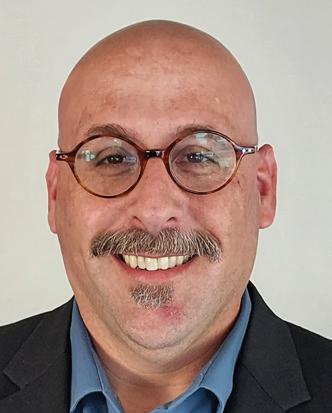
His appointment was made by Providence Hospitality Partners, which manages the Best Western Plus Bellingham Airport, Four Points by Sheraton Bellingham Hotel & Conference Center, and properties throughout the country.
Got to www.bestwestern.com for more information.
The office space market in Bellingham slid some more in the second quarter of this year but still is much healthier than in Seattle and other large cities, according to a report prepared by Ryan A. Martin, co-owner and broker at Pacific Continental Realty in Bellingham.
The vacancy rate for office space in Bellingham on June 30 increased 0.6% from the first quarter to 5.6%. Barkley Village and downtown took the hardest hits, Martin said. The average asking rate for office space in Bellingham dipped 12 cents during the second quarter to $19.66 per square foot.
However, according to a second-quarter report issued by Colliers, office vacancy in Seattle rose from 22% to 24%, and the average asking rate for Class A office space declined 4% year over year to $57.18 per square foot.
“While the overall office market is down, it is not desolate, as the vacancy rate is still in a very healthy zone,” Martin said. “Bellingham does not have stacks of high-rise towers of vulnerable office space that is leading the headlines of the national office market. It does not appear that an
office market crash is anywhere on the horizon in Bellingham.”
Bellingham’s retail vacancy rate ticked up 0.1% to a low 2.8%, but the average asking rate for retail space in Bellingham rose above $20 for the first time, to $20.12.
“While downtown retailers have rightly expressed their frustration with the current conditions of the streets, the statistics are not showing a trend of a mass exodus,” Martin said. “In fact, the vacancy rate for downtown retail space was not only nearly unchanged from last quarter, but the vacancy rate is also down from a year ago, from 5.1% to 3.8%.”
Additional inventory contributed to the vacancy rate for industrial space in Bellingham rising in the second quarter from 1% to 1.8%. The average asking rate for industrial space still went up a penny to 84 cents per square foot.
“While the additional inventory may provide some relief for tenants
seeking industrial space, the overall impact of the additional inventory will be minimal,” Martin said. “The added inventory had previously been owner-occupied and is not the most desirable industrial space.”
For more information, go to www.pacificcontinentalrealty.com.

As the population ages, the likelihood they will need medical care continues to grow. Thus, the need for nursing assistants — and their value in the workforce and community — is growing as well.
A July 2023 search on Indeed.com showed more than 135 local job vacancies for nursing assistants. Data from the Washington State Employment Security Department also proj-
ects continued job growth through 2030 for nursing assistants. The need is great, and demand for nursing assistants is high.
Lynden Healthcare Education, a nonprofit workforce development training program that launched earlier this year in north Whatcom County, aims to meet that need via a free or low-cost certification program.
Course instructor Dianne Anderson has taught nursing assistant certification classes in Whatcom County since 2009, and now she teaches the program at LHE.
“As a CNA instructor, I share industry knowledge and help students learn new skills. I am here to guide students through the training program and to help them succeed during the test and throughout their new careers,” Anderson said.
Visit www.lyndenhealthed.org to learn about LHE’s five-week nursing assistant training program.








Business Pulse asked all the candidates for Whatcom County executive, Whatcom County Council and Bellingham mayor to answer the following questions so you can better understand their positions on some of the key issues facing your business and Whatcom County and Bellingham in general.
We hope this will be a helpful resource as you make your decision when voting this fall. Be sure to register to vote, if you have not already, and return your ballot by Election Day, Nov. 7, 2023.
Dan Purdy is a small business owner, management consultant and author who has worked for Fortune 500 companies, mid-size com panies and startups.
Hannah Ordos has held leadership positions in telecommunications, insurance, education and health and wellness and is a customer support manager for Vitamin Portfolio LLC.
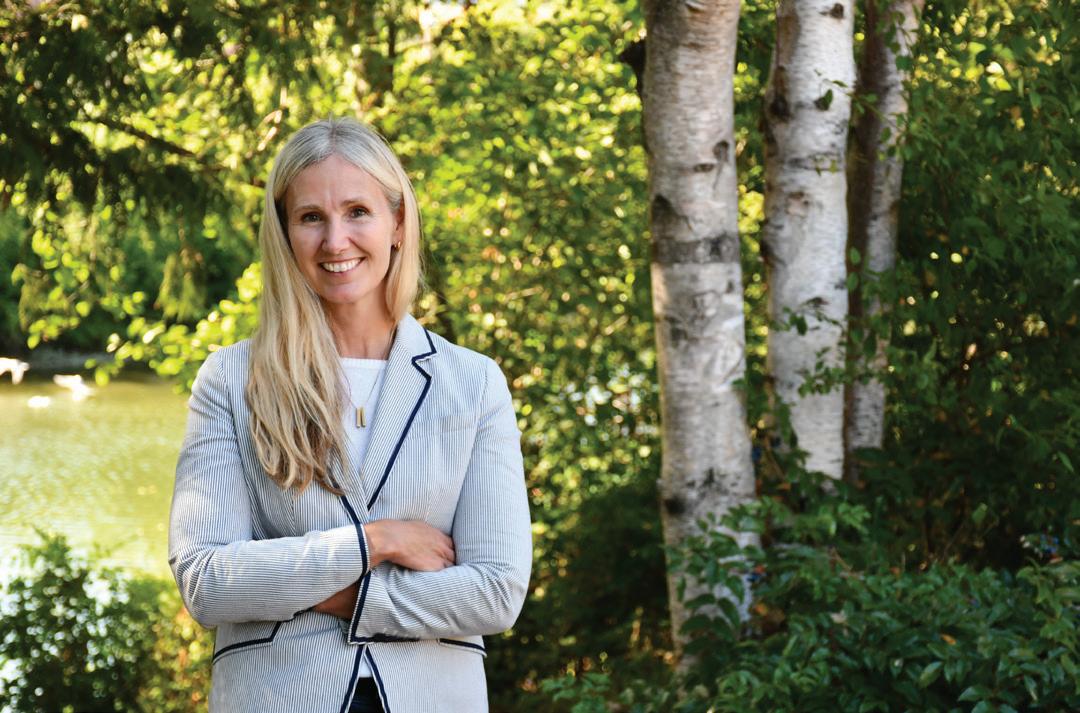
DISTRICT 4: COUNTY COUNCIL
Incumbent Whatcom County Executive Satpal Sidhu, who was elected in 2019, did not respond to our request.
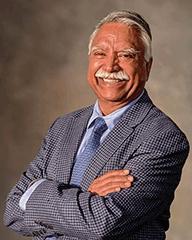
DISTRICT 5: COUNTY COUNCIL

Jon Scanlon is a consultant working with Indigenous communities and conservation organizations and an appointed member of the Bellingham Community Development Advisory Board.

Mark Stremler co-owned Stremler Dairy. After 12 years of farming, he became a general contractor. He is currently employed with Whatcom County Public Works.

Incumbent County Councilmember Ben Elenbaas and Jackie Dexter did not respond to our request.
Seth Fleetwood is the current mayor, running for reelection. He is an attorney and former member of the Bellingham City Council and the Whatcom County Council.
Kim Lund is the executive director of Bellingham Public Schools Foundation, team leader at a Fortune 50 company, and a current Whatcom County planning commissioner.

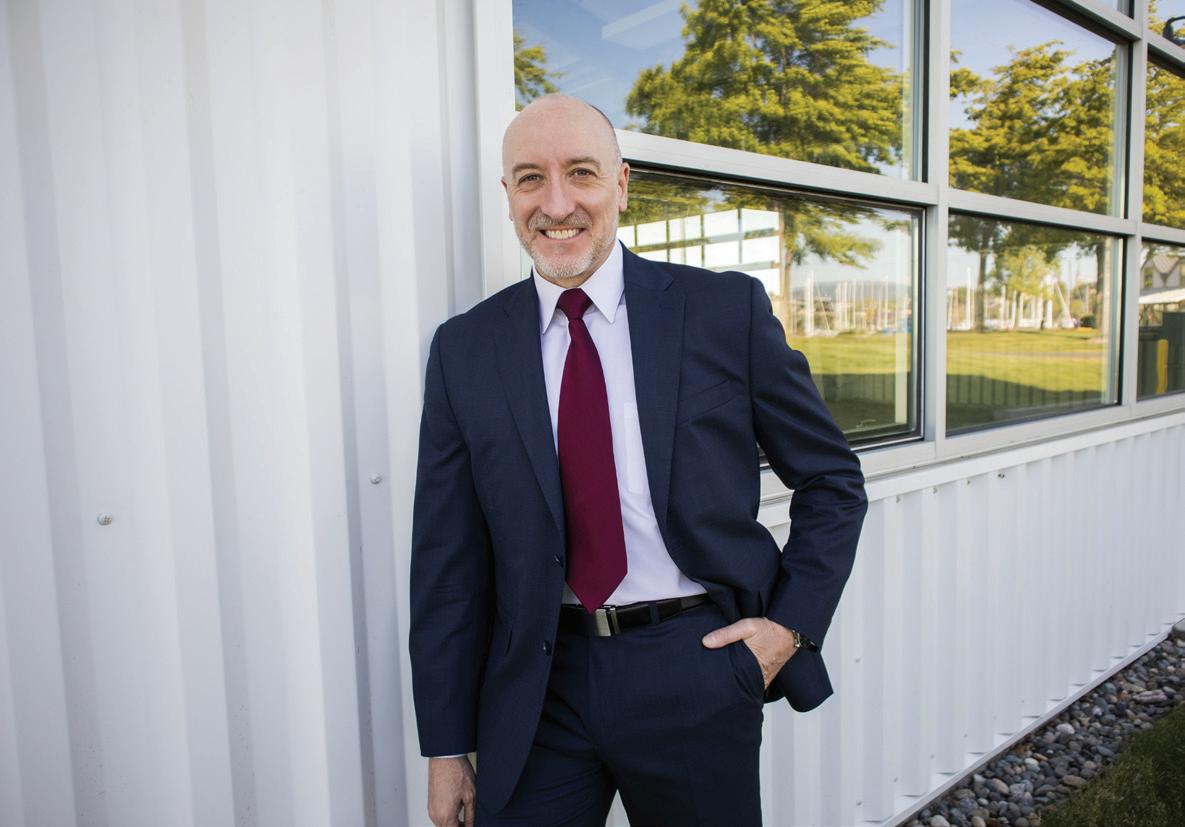
1.
What would/could you do, if anything, to try and bring down the price of gas in Whatcom County? Do you support or oppose policies like a tax on carbon dioxide emissions that increases the price of gas so people and businesses might use less fuel and reduce the environmental impacts of climate change?
2. Do you support public safety campaigns like the recent Community Campaign for Public Safety Solutions petition led by the Downtown Bellingham Partnership and the Bellingham Regional Chamber of Commerce asking the mayor and city council to take action to increase public safety? The petition requests that Bellingham officials increase security personnel in downtown, work with Whatcom County to ease booking restrictions for repeat offenders, increase resources to clean up downtown, and stop the distribution of illegal drugs. If not, what are your alternative ideas?
3.
4.
What can be done by Bellingham and Whatcom County leaders to stimulate economic growth and help small businesses and citizens thrive?
Do you support or oppose the two ballot initiatives that will be in front of Bellingham voters this November (even if you don’t live in Bellingham)? Briefly state why or why not. These issues are relevant for all elected offices in Whatcom County, since they are being decided in the county’s largest city and will likely have an impact on the entire county.
Initiative 1: If passed, it would increase the city’s minimum wage to $1 above the state’s minimum wage starting May 1, 2024, and to $2 above the state’s minimum wage starting May 1, 2025. (The current state minimum wage is $15.74 per hour. Passage of the initiative would make Bellingham’s one of the highest minimum wages in the state.)
Initiative 2: If passed, “protections” for renters would require landlords to provide 120 days’ written notice of a rent increase above 8% and would require “rental relocation assistance” equal to three times the fair market rent or the Department of Housing and Urban Development market average, whichever is larger.
5. What is the most important issue facing Whatcom County, and what is your plan to address it? (Asked only of Whatcom County candidates.)

1. The 18th Amendment to the State Constitution earmarks gas tax and vehicle licensing for highways, roads, bridges, etc. Trucks deliver goods to our geographically isolated county. Responsible transportation policy improves infrastructure/mileage, reduces congestion/ emissions, increases productivity and results in a healthier economy and environment. Taxing emissions limits Washingtonian’s freedoms.
2. America is built upon rule of law and equal justice under the law. Respect for our laws, personal accountability, and proper law enforcement secure us. The “P” in my P.A.C.E. platform means Public Safety. I support campaigns/petitions that raise the standard for all residents and visitors.
3. Let’s embrace business-friendly policies and appropriate deregulation and streamline processes and create new jobs to boost our economy. Let’s encourage tourism, improve community events, train/educate our workforce and invest in strategic entrepreneurial pursuits. Let’s develop infrastructure (e.g., rural Wi-Fi access, roadways, etc.) and build more houses while preserving agricultural land.
4. I do not support initiatives that reduce the liberties, rights or freedoms of Americans to conduct their business, manage private property or operate in a free market. Minimum wage laws may disincentivize businesses, stifle investment, increase prices, reduce hours available, create barriers for unskilled workers and drive demand online versus local.
5. Public safety requires a multifaceted approach. I’m in favor of the new jail and the people electing their representatives. I stand with law enforcement, firefighters, emergency medical services and the medical community on increasing mental and behavioral health services. Outreach, appropriate intervention, effective treatment, recovery and restoration will help to reduce homelessness.
1. We should be concerned about how fuels costs are affecting those already struggling. At the state level, they should revisit if the legislation that is causing these increases outweighs the negative impact it is having. People spending more at the tank means less money for basic needs such as food.
2. Yes, I support initiatives that give our business owners, their staff and patrons a greater sense of security. Feeling unsafe causes people to withdraw from the larger community, and connection is something we truly need to thrive.
3. Whatcom County first needs to be a place where businesses want to do business. It is important to evaluate the barriers that may prevent this, such as overregulation, inadequate infrastructure and workforce development as well as access to capital and/or incentives.
4. We need to consider the impacts and how an increase will affect small businesses, the availability of jobs, and the adoption of automation. I would like to see a greater focus on attracting jobs in our area that naturally pay higher wages and provide the needed skills.
We need to look at what can be done at the county level to ensure we are not creating regulations that are driving up costs that are then passed on to renters. More regulation should not be the way we fix poor regulation.
5. A primary concern is public safety, and I believe a lot of the challenges and possible mitigation are addressed in the implementation plan for the jail levy. It’s important to also acknowledge we have a fentanyl issue in Whatcom County. Steps must be taken to identify how it’s trafficked, hold those accountable for its distribu-


tion, educate and be transparent with the public, and use resources effectively for prevention and substance abuse services.
1. Too many workers are priced out of living near their jobs. The county can do little to impact gas prices. The best way for Whatcom County to help is to bring good jobs to our county, support affordable housing and build dense neighborhoods to cut down on commutes.
2. I support increased public safety countywide. We need investments in behavioral health and substance use treatment, efficient courts and a safe jail. In order to create a thriving downtown Bellingham, the neighborhood needs more residents. Whatcom County can help by turning underutilized county property into workforce housing.
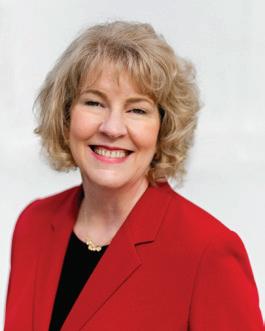
3. The best thing that Whatcom County can do to stimulate economic growth is to plan for the future. We have an opportunity to be at the center of the energy transition. We should use county planning processes and policies to attract the jobs of today and tomorrow to our community.
4. I support both initiatives. Workers in Whatcom County are struggling. The best way to prevent
homelessness is to keep people housed. Raising wages for workers, combined with housing policy changes and investments in affordable housing, can help more families remain here in the place that they love.
5. Whatcom County has an affordable housing crisis. We need a variety of policy, budget and legislative changes to address affordable housing. There’s no silver bullet that will fix things, and it won’t happen overnight. I will work with others to develop a comprehensive approach and a big coalition that includes Whatcom County, the seven cities in the county, allies in state and federal government, workers, businesses, nonprofits, renters and advocates.
getting more involved in calling for measures to clean up Bellingham. The situation has caused many businesses to relocate or close altogether.
3. The Whatcom County Business and Commerce Advisory Committee has told us that affordable housing, child care resources and public safety are the main concerns for attracting employees, which are crucial to business success and growth. I’m listening and working to help solve these problems.
4. The free market is already paying more than the minimum wage. Very few people, if any, are working for minimum wage. Employers are already paying more than minimum wage to attract workers. It is an employee’s market, and they are demanding more than minimum wage to go to work.
I don’t think this solves any problems. Landlords will just increase rent 7.9% on a regular basis to bypass this initiative. Rental relocation assistance, along with higher rents, will only make housing more expensive and create higher rental costs that will be passed to renters.
KERSHNER1. I advocate for the state Legislature to reduce or eliminate the gas tax. I support a transition to new fuels and think taxes on CO2 emissions are a shell game that benefits those with the most money and punishes those who are struggling to get gas to get to work.

2. Yes, I support the Community Campaign for Public Safety and am glad to see the business community
5. We need a new jail. I have worked to bring a reasonable, cost-effective proposal to the voters to build a new jail and provide services we currently cannot offer due to insufficient space. I am on the YES – Safe Jail, Healthy Outcomes committee to educate voters about the reasons it is cost-effective to replace our jail.
While the Whatcom County Council has limited influence on the price of gas in Whatcom County, I believe it is the council’s responsibility to enact balanced environmental policies that address the interests of our agricultural communities, businesses and working families with environmental stewardship. Taxes on CO2 emissions will further burden our economy. Whatcom County should take a commonsense approach to protecting our environment and our economy simultaneously.
2. As your representative, I would prioritize public safety, and I believe Bellingham must address the crisis effectively. One potential approach is adopting measures like those in Lynden, with arrests for crimes and a zero-tolerance policy. We should also explore community policing, restorative justice, drug rehab and mental health support to enhance overall safety.
3. As your representative, public safety is a top priority. Implementing measures like Lynden’s zero-tolerance policy and exploring community policing, restorative justice, drug rehab and mental health support can enhance safety. Let’s also consider measures to prevent undue burdens on businesses, like a gradual minimum wage increase for economic stability.
4. I oppose. Sudden wage increases may lead employers to automate or reduce hiring to offset costs, potentially impacting job opportunities. Balancing worker needs with business interests is vital for addressing income disparity while maintaining economic stability in our county. I oppose. This initiative could harm landlords by limiting rent adjustments based on market conditions, increasing financial burden with mandated relocation assistance, and potentially discouraging property investment, affecting rental housing supply. Balancing renter protections with landlord sustainability is crucial for a fair housing market.
5. Too many issues to pick just one, but I’m very worried about affordability and cost of living, encompassing housing costs, building expenses, regulations, codes and property taxes. This demands a comprehensive strategy, including regulatory simplification, affordable housing projects and potential property tax reforms to relieve financial pressure on residents and improve quality of life.
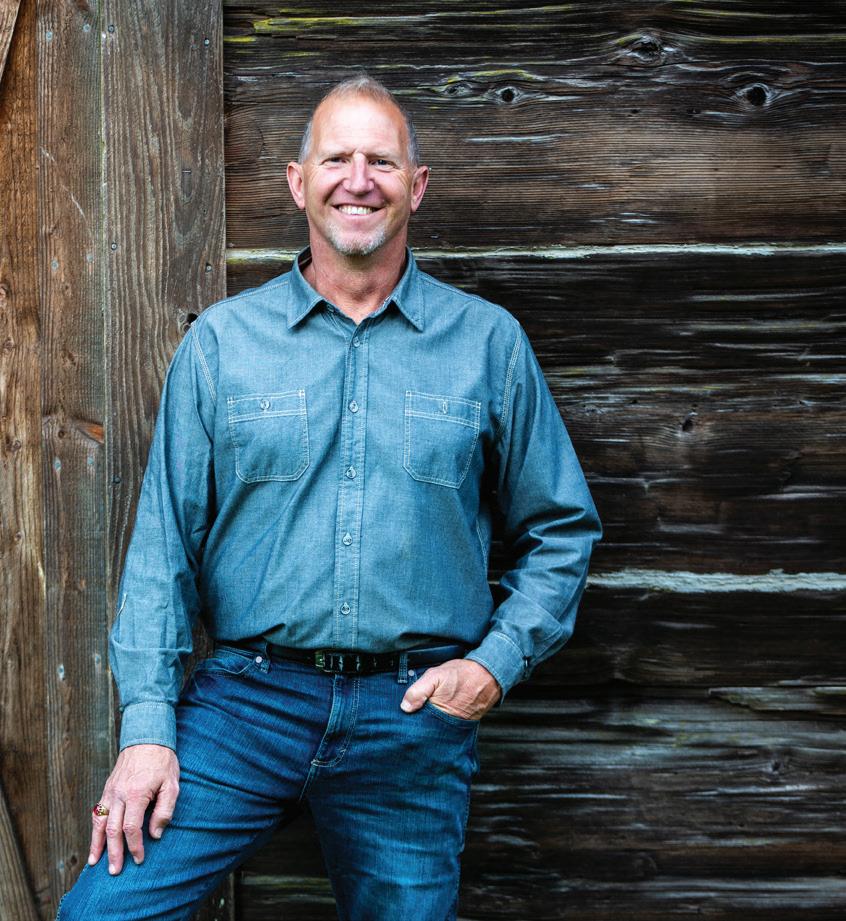

1. I do not believe there is anything I can do as Mayor of Bellingham to reduce the price of gas in Whatcom County. Yes, I do support placing a price on carbon use as a general proposition. By what precise means we employ that is an open question.
2. I support public safety in Bellingham. We are implementing all things requested by the campaign to which you refer: We are staffing back up in our police, restoring police foot patrols in downtown, increasing cleanup crews, prohibiting open public use of drugs, enforcing anti-graffiti laws, investing in security and more.
3. The city of Bellingham provides essential public services to the people of Bellingham. We, on the public side of the equation, do our part to help ensure that private business can thrive by providing reliable public infrastructure and services, adequate lands for growth and a predictable and supportive regulatory process.
4. Bellingham’s initiative process provides great freedoms to enact new laws through direct vote of the people. As mayor of Bellingham, I am obligated to enforce the law in the event it passes. I trust that the good judgment of the people will be expressed at the ballot box after a vigorous debate on the merits.

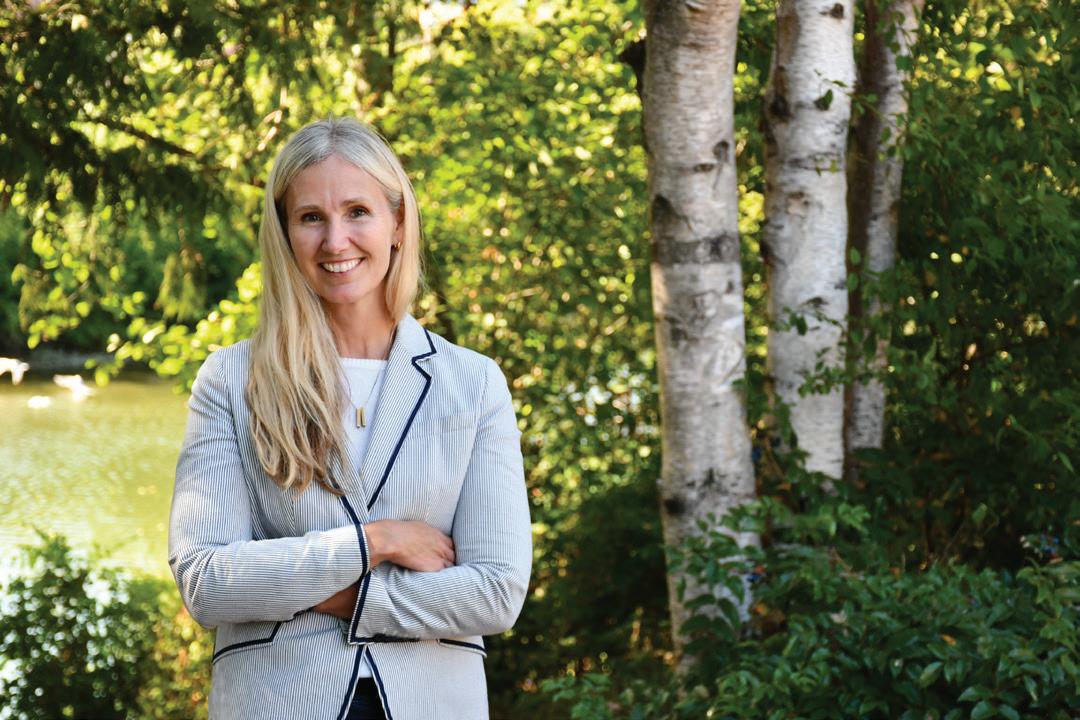
1. Motor vehicle fuel tax rates are outside of a mayor’s purview. I support commonsense efforts to reduce CO2 emissions, as there is a strong business case to be made that delaying the transition towards alternative fuels and energy sources will be much more costly for both businesses and municipalities alike in the future.
2. I think it is important to enact stabilization measures for small local businesses that are experiencing increased direct costs, lost revenue and disruption. Small businesses are critical to our community’s growth and vibrancy, and we need a safe downtown for all. I don’t see this work as being at odds with supportive programs or
expanding services for people who are struggling. As mayor, I would call for civic, community, business, social service and neighborhood leaders to enact a Downtown Activation Plan that lays out the continuum of short- and longterm actions to drive progress and usher in a new future for downtown.



3. We need leaders who can define a clear and compelling vision for our economic future. We need to invest in the infrastructure businesses will need, including fiber, to help attract employers. We need to remove roadblocks to creating more workforce housing so people can live in the community where they work. As mayor, I would be eager to get to make public progress on these issues.
4. I want people to have good opportunities to earn wages well above the minimum wage, and that is why I
believe a strong emphasis on economic development is critical. It’s also why I’ll have a focus as mayor on the supply side of the equation in terms of housing. My worry is that this initiative will put Bellingham at a competitive disadvantage versus the other small cities in Whatcom and Skagit counties. If the citizens vote yes, I’ll do my best to uphold their decision and our local businesses.
I understand the need for measured increases in rents. During the campaign, I’ve talked to people who have experienced 20-25% increases in a single year, including a family with a newborn that lost their housing as a result. As mayor, I would urge our state representatives to craft a legislative approach that can be adopted throughout Washington, as I see this initiative as potentially pegging increases in rents in Bellingham year over year at 7.9%. ■






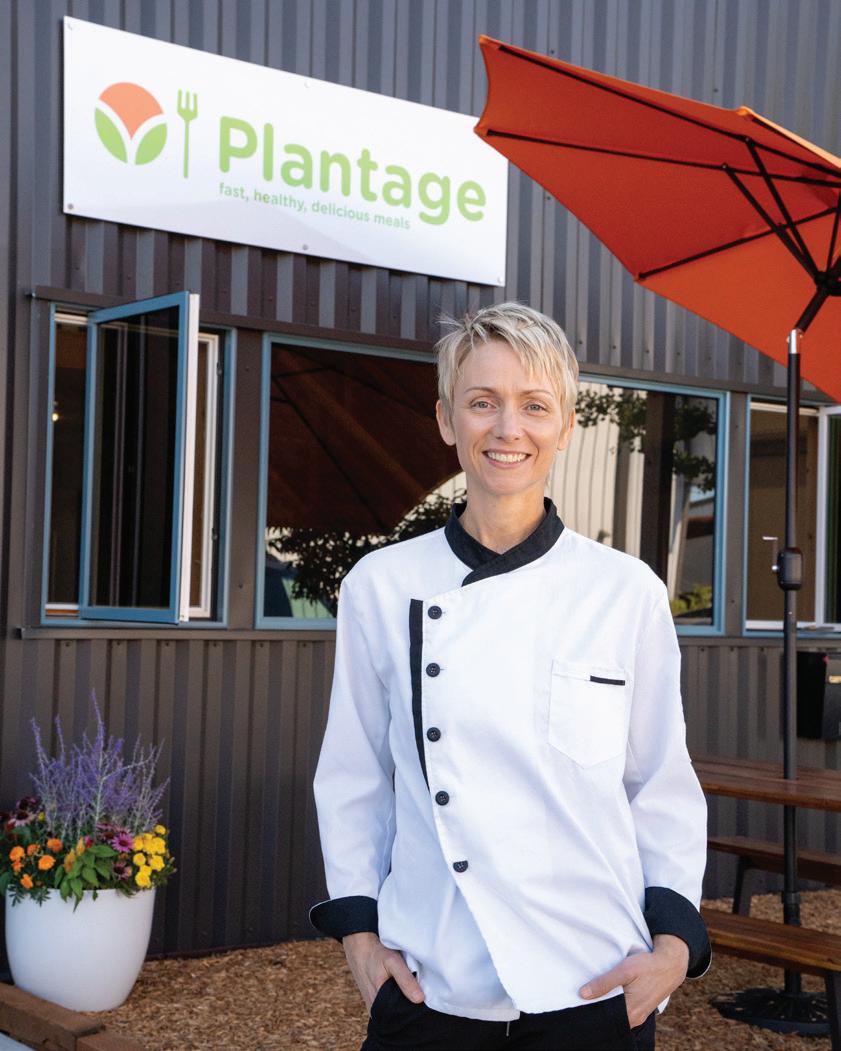
Midway through a brisk workday at her real estate office, Julie James breaks for lunch, leans over the steaming bowl in front of her and inhales. The broth has been infused with charred onions, garlic and aromatics – warming spices of clove, cardamon and cinnamon sticks. Vegetables cut on the bias – bok choy, celery, sugar peas, carrots and broccolini – have been steamed just enough to deliver a satisfying snap. Plumped with a trace of scallion oil, a nest of noodles completes the dish.
The midday fare is a colorful and fragrant pho, traditional Vietnamese soup. The entrée, composed of all organic and plant-based and mostly local ingredients, was created at Plantage.
Every week, owner and chef Chris Wilson plans, shops, prepares and cooks hundreds of elevated, plantbased meals in her state-of-the-art commercial kitchen in Bellingham. And clients from throughout Whatcom County come to Plantage, happy to pick up their nutritious lunches and delicious dinners to take to work and enjoy in their own homes.
The pho is emblematic of the array of entrees available at Plantage (rhymes, of course, with “cabbage”). Wilson, a seasoned chef of 18 years, said, “You start with a giant pot of water, and you end up with something really satisfying.” Like all her creations, the pho is
complexly flavored, satisfyingly textured and skillfully layered, from the rich broth to the crunch of the vegetables to the slurp of the noodles. “You can eat so much of it,” Wilson pointed out. “Yet, the soup is chock-full of nutrition, and you feel full and fueled.”
Healthful fullness is what customer James and her husband, Mark Frye, and their 8-year-old anticipate. Weekly, they pick up a meticulously organized basketful of prepared meals, accompanied by easy-to-follow, step-by-step instructions.“Becoming a client made sense,” James said. “I penciled out the costs of meal planning, shopping and cooking myself, and I was honest that I avoided these tasks. Grabbing something on the go that wasn’t nutritious


was replaced by Plantage.”
James added, “Chef Chris is amazing. Her meals are delicious. And we are healthier and happier.”
How to combine healthful entrees with satiety and create more time for Whatcom families? This is the equation that Wilson – who grew up on the western plains of Oklahoma, went to culinary school in Houston and earned a degree in mathematics – wanted to answer when she opened Plantage in January 2023.


As a business owner, cyclist and skier, wife and mom, Wilson thinks a lot about how Whatcom folk eat. “So many people love the natural beauty here,” she said. “I wanted to fuel families with delicious meals. And I also wanted families to have more quality time – so instead of planning, shopping and cooking, they could be paddleboarding on Padden or enjoying their photography side gig.”

Back in her chef days in Houston, Wilson gradually converted from thinking about food as entertainment to understanding food as sustenance:
“I went from creating foams, froths and foie gras to making fresh nut milks, sprouting seeds and fermenting vegetables.”
With a focus on flavorful sustenance, Wilson easily serves patrons who ask these questions: “How is your tofu fortified? In your lasagna, where do the tomatoes come from?”
Before COVID-19, the chef considered opening a café. But with restaurants closing during the pandemic, and with the awareness that her own family valued time together at home versus eating out, Wilson found her business model. “I wanted to create elevated entrees that clients pick up once a week, then enjoy in their homes.”
She also wanted the food to be nutrient-dense and elevated. “There is a gap between restaurant food and food that nourishes your body,” Wilson said. “There is also a gap in vegan food. Largely presented as bowls and wraps, vegan dishes often lack elevation, aren’t plated with sauces or garnishes and do not satisfy.”
She summed up: “This is food you’d expect in a restaurant that also nourishes you.”
Plantage is tucked into the industrial-residential mix of Bellingham’s Sunnyland neighborhood. Here, people can get a new heat pump, wander into a brewery or build raised garden beds in front of their homes. Wilson liked the vibe (delightfully funky) and location (intentionally central, adjacent to Interstate 5) for her customers’ weekly visits from Blaine, Fairhaven and even Seattle.
Clients decide on the number of weekly entrees that works for their household: a “small” package of six portions, a “standard” package of 12 portions or a “large” package of 18 portions. Every dish is photographed and presented online. Customers choose from eight menu features each week, including at least three gluten-free options. Chef’s pick means you can follow Wilson’s choices, always popular, as a convenient way to enjoy diverse meals without spending time to order. Sign up once, pick up weekly, be nourished daily: That is the value in an elegant (plant-based) nutshell.
At her workplace, which she “never doesn’t want to come to,” Wilson is deft at creating entrees such as polenta
with ratatouille: “My favorite dishes are hearty and rich peasant food, like this true Italian dish.” For this entree’s base, Wilson makes her own cashew milk, a strategic surprise added to the polenta so the grits don’t seize up but remain velvety. Eggplant, zucchini, yellow squash, tomatoes and dried and fresh herbs make the ratatouille. Finally, the heirloom white Cicerchia beans from Rancho Gordo, with a little garlic herb oil, “cook up like little teeth.”
“My entrees are not trays of food from the freezer section that you heat and serve,” the chef said. “Instead, you spoon into satisfying layers: creamy polenta, chunky ragu and delicate white beans, finished with a sprinkling of cashew-based vegan parmesan.”
Though Wilson opened Plantage this year, she drew on three and a half years of prior success working as a personal chef for Whatcom families, creating a solid client base. Her previous business model was rewarding but also time intensive. She shopped for one family’s ingredients, went to the client’s home to prep and cook in the kitchen, then stocked the pantry and refrigerator with a week’s work of entrees.
Wilson added another chef, Abigail Bruno, who helped expand the person al chef business. But the max the duo could serve was four homes a day, with lots of driving time. Wilson wanted to decrease her business carbon footprint and variance (“we were dependent on clients’ kitchens”) and increase service, adding more clients as well as menu variety.
The chef began searching for a lo cation to house a commercial kitch
en that would flip her service model. Instead of going into clients’ kitchens, clients would come to hers. When Plantage opened this year, 20 families from Wilson’s personal chef business stayed with her and, importantly, Abigail did, too.
On Grant Street in Bellingham’s Sunnyland neighborhood, the cheerful Plantage storefront, with a rolling metal service garage door and a fir front door, opens into a commercial kitchen. An impressive row of stainless steel appliances is framed by a wall of clean, white subway tile and a pressed fir staircase that leads to an open loft used for storage and office space.
Whatcom has been described as a supportive county in which to start a small business. Still, changing a busi-
ness model and investing hundreds of thousands of dollars in the right commercial equipment were critical steps.

A combination oven anchors the lineup of high-end, culinary machines. “The combi (shorthand for combination) is like a car,” Wilson said, because this single unit operates as a smoker, steamer and convection oven. Recipe times and temperatures can be programmed in, while humidity and fan speed can be adjusted. There’s also a huge gas range, a separate heating source for stockpots of simmering broths and beans, a blast chiller and a walk-in refrigerator.
On one Monday, an enormous prep sink is full of organic, green bunches of broccoli, 60 heads at least. Including the broccoli, 600 hundred pounds of vegetables will be prepped for the week’s 330 entrees.
“Once prepped and cooked,” Wilson said, “everything our clients pick up must stay fresh for seven days.”
Kitting out the space to meet permitting standards was also an investment of time. “COVID hit the city and permitting was short-staffed,” Wilson said. “But we were patient, and it all worked out.”
Pointing to the industrial-sized sanitize, rinse and wash station mandated by the county health department, Wilson reported these county officials were “phenomenal” in their communication and follow-up, even alerting her when more fees than necessary were paid. “At the department, Tom was so present,” Wilson said. “He welcomed my questions and was someone I could turn to.”
At most restaurants and markets, the kitchens are tucked away, unseen by customers. At Plantage, the kitchen is on full display. “There are a lot of curtains in this industry,” Wilson said. “We want to be transparent.”
So, when clients pick up their entrees, they see what chef Chris wants them to see: everything. A highly organized kitchen space that is daily scoured and regularly hard-cleaned. Two chefs who easily work together. And importantly, all the organic ingredients largely sourced from the Pacific Northwest – from the red cabbage to the flaxseed – are front and center.
Most Plantage ingredients come from the same wholesaler that sells to the Bellingham Community Food Co-op. A case of locally grown, organic onions for Wilson costs $50. As comparison, at the local chef store, a case – not necessarily organic or local – runs $18. “I won’t cut corners,” Wilson said. “My customers see what they’re getting.”
Wilson also won’t compromise on how her entrees are bundled. “Compostable packaging is so expensive,” Wilson explained. But she’s committed to being environmentally conscientious.
Even the dishwasher follows the throughline: no sulfates are used. Instead, Wilson invested a lot more money into an appliance that recirculates water from the first cycle, traps the steam, and turns the condensation back to water for a high-temperature, chemical-free, environmentally friendly rinse.
One Whatcom County expert commended Wilson’s thoughtful build of her business. “Plantage is a great illustration of the startup philosophy called minimum viable form,” explained CJ Seitz, director of Western Washington University’s Small Business Development Center.
“The startup gets in front of the customer as quickly as possible, with the absolute minimum of effort and investment,” Seitz said, describing Wilson’s initial personal chef business. “Once in the market, the startup will learn much more about the needs, pains and gaps that present themselves.”
Seitz continued, describing Wilson’s current business in a commercial kitchen: “This wise entrepreneur discovered a need that presented a more scalable business opportunity, and she pivoted to this new alternative – a prescription for small business success.”
“Kitchens are like little families,” Wilson said with a smile. “They are lively and fun places where you have meaningful conversations.”
Those exchanges happen daily between the chefs. Wilson is quick to
point out, “I could not be doing what I’m doing, on this scale, without Abigail.” She added, “I hired Abigail not to fill a position, but because she is as passionate as I am about our mission.”
Wilson wants to intentionally grow subscribers, never sacrificing the thoughtfulness for entrees that change with the seasons, from the spring pea risotto to the autumn-favorite Swedish not-meatballs with classic cream sauce.
What does Wilson enjoy most? “I love knowing our clients,” she said. “We know whose child won’t eat mushrooms, who enjoys more cilantro, and the family who loves the cauli-mac bake with tempeh ‘bacon.’”
After mealtimes, and sometimes even during, the chef regularly receives texts from happy customers: “LOVED the enchiladas and the coconut bowl!! Thank you for the nurturing and nutritious menu this week!” And: “I enjoyed the ramen on the seventh day, and the vegetables tasted like they had just been sliced. How do you do that?”
Today, in the kitchen, Wilson and Abigail prepare celery, onion, peppers, carrots and mushrooms for moo shu vegetables. The cooks are scratch-making hand-rolled Mandarin-style pancakes that will enfold the crunchy goodness. Once ingredients have been transformed into entrees and labeled, the two pause to observe their work, laid out on the long pickup counter.
Wilson mused that 90% of her clientele will be enjoying the same meal at some point this week. “All of these people are taking these entrees – and eating healthfully – in different homes, but together, too.”
At Plantage, families nourished by time together over wholesome food is a happy and delicious mission. ■


Most of us don’t give much thought to where all the little metal parts in our lives are manufactured, or even how they’re made. Many are made right here in the United States, including in Whatcom County. From medical devices, marine and aircraft parts, food service and military machinery, metal parts are the foundation of most every machine or process in our homes, businesses and government.
“Our world and economy wouldn’t function without them,” said Roger Janssen, president of 3DX Industries, the Ferndale-based precision machine shop and manufacturer of three-dimensional metal printed and composite printed products.
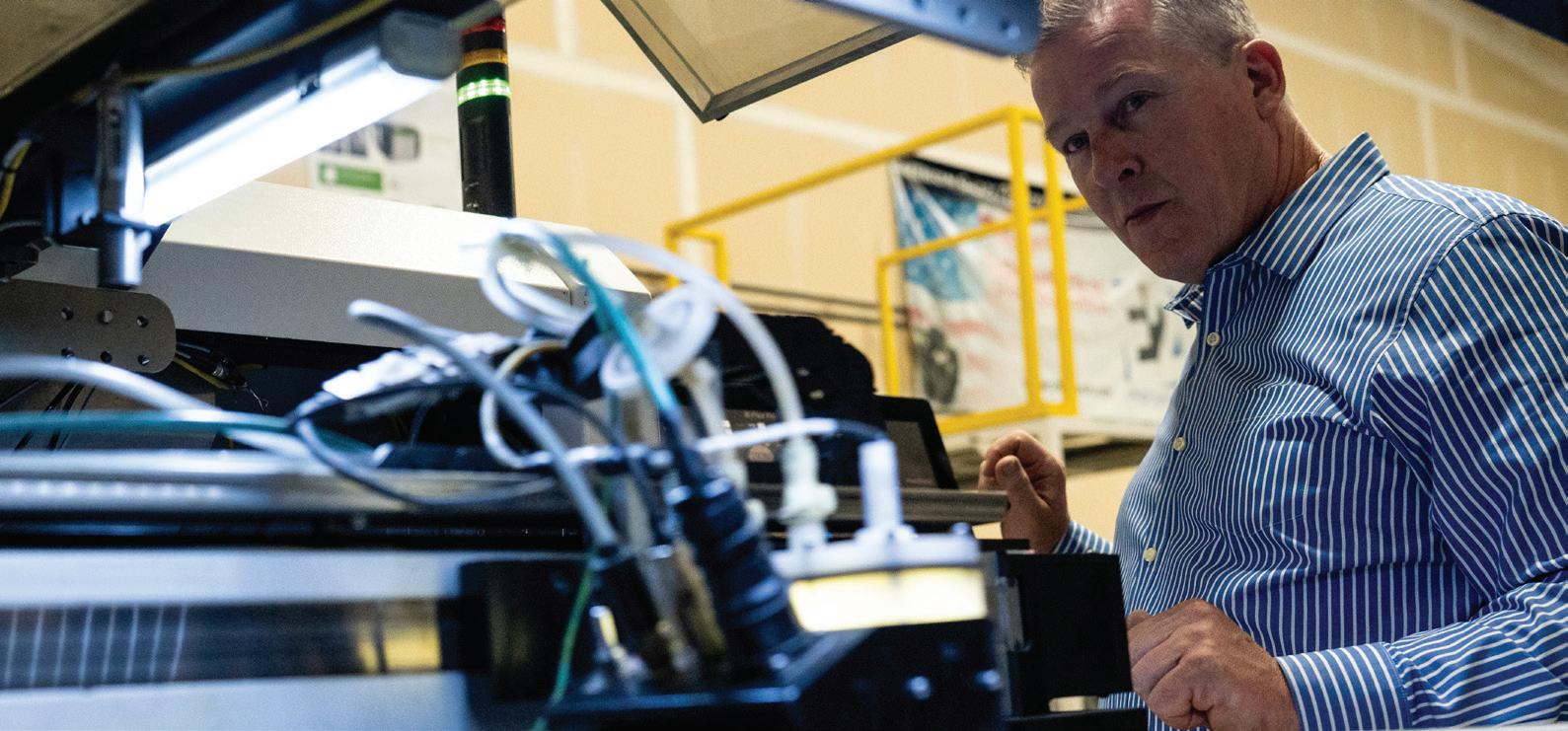
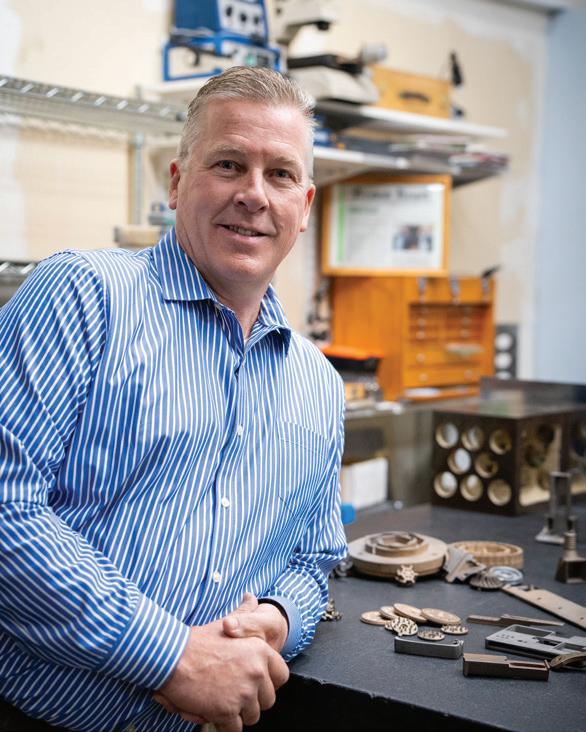
Their process also includes in-house
design support, rapid prototyping, production and assembly services.
“3D metal printing is a newer technology,” Janssen said. “It’s exciting, and there’s a clear need for it to help with our national industrial base. We’re getting support for it from this administration, and it’s a job that a lot of young people are interested in.”
According to Rob Errera of Toner Buzz, the global 3D printing market reached a value of $13.8 billion in 2021, with $5.72 billion of that in North America.
“Various analysts predict that the 3D printing industry will grow at staggering speeds — between 18% and 27% per year,” Errera posted on the Toner Buzz website in 2022.
Janssen, who considers himself a motorcycle nut, works on the pit crew with a group that’s trying to break the motorcycle land speed record.
“That’s what got me into machining, actually,” Janssen said. “I started the machine shop in Snohomish County in 1984, Key Manufacturing, and moved it here to Ferndale right after 9/11. A lot of our work was originally for Boeing, and we were right there on Mukilteo Speedway next to a lot of little machine shops. After 9/11, those purchase orders dried up, and so we decided to diversify.”
Janssen chose to relocate to Ferndale because of its convenient proximity to Interstate 5 and Canada.
“I love Whatcom County, and about
10 years ago I merged my company with 3DX, which is a publicly traded entity, and that enabled us to expand and buy the metal printers,” he said.
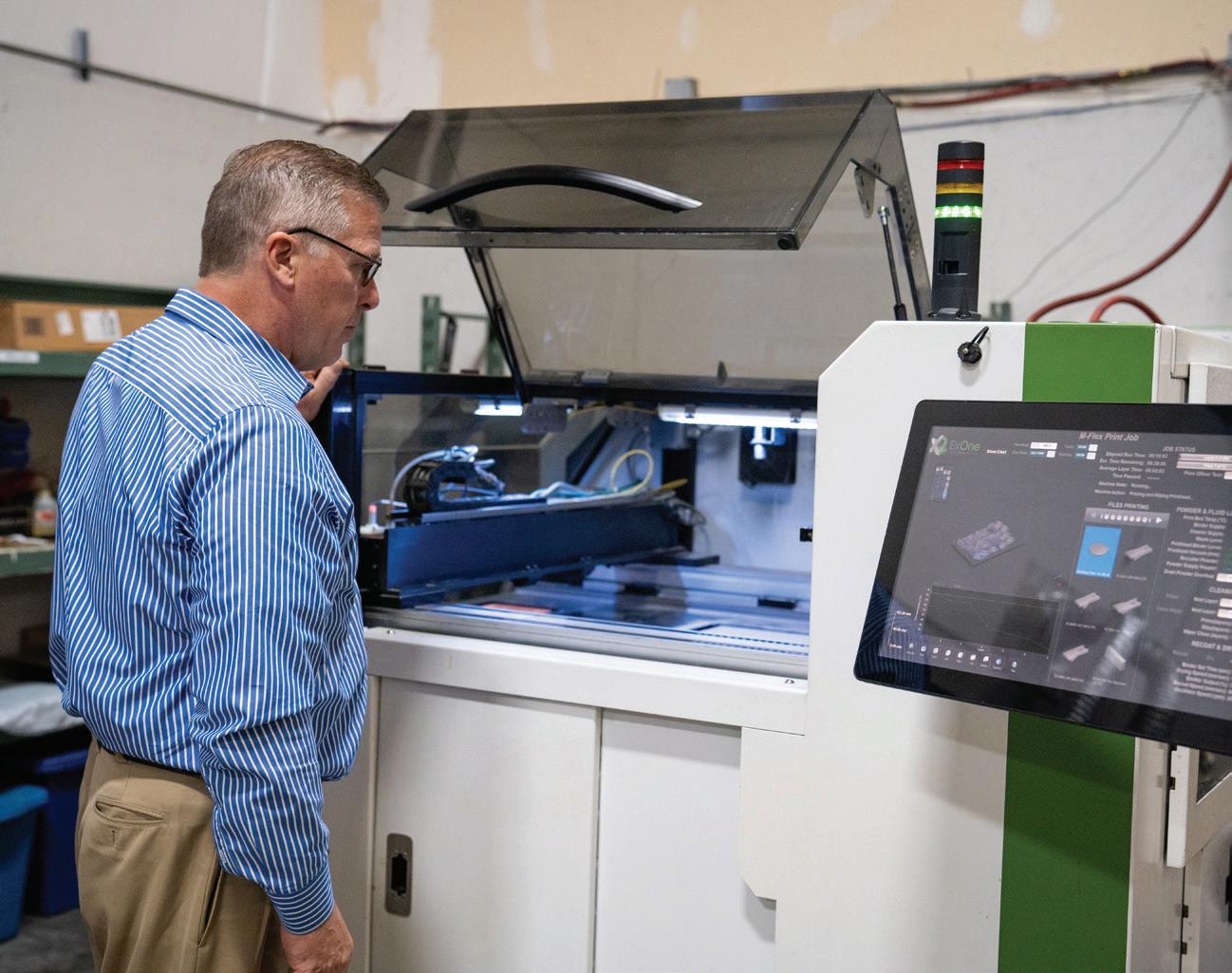
Metal manufacturing can be additive or subtractive, but many parts use both types of machining to achieve a precision finished product.
Additive manufacturing is what you think of as classic 3D printing, with each new layer built on the last. 3DX currently prints using a range of 3D printers capable of printing in picoliter drops of stainless steel or nickel powder.
Subtractive manufacturing is what you might imagine when you think of typical metal machining. A wide variety of tools and processes are used to remove pieces of metal systematically until the final part is all that’s left.

“The different metals have different hardnesses, and when the hardness changes, all your cutting parameters change,” Janssen said. “You might need to use different tools or slow the tool down or speed it up. It makes machining extremely important, and it’s still a growing field, a very skilled trade.”
Janssen says most don’t know how many steps can go into making a single part, and many think of 3D printing as just the push of a button. In fact, each part goes through a variety of steps and processes.
The process almost always starts with a precision design made in a computer program. The design is then plotted in three-dimensional space, generating thousands of X, Y and Z coordinates (G-code). Those coordinates are then loaded into the computer brain of the metal printer so the design can be printed and tested over and over in order to improve and perfect it.
“In binder jet printing, a fine metal powder is laid down very accurately out of the printer head,” Janssen said. “We add a binding agent that sort of glues the metal particles together when it’s cured at a high temperature over several hours. The binding agent burns off, and all those particles become one.”
Before they have cured, any defective parts can be pulverized and reused with no waste generated.
3DX doesn’t yet use the other two main types of 3D metal printing — selective laser sintering and electron beam melting — because they are
much more involved and expensive and require more troubleshooting and maintenance.
Most 3D metal printed parts must go through some additional subtractive machining steps after they are printed.
“You can’t 3D metal print super accurately yet,” Janssen said. “Some parts need to be perfectly flat. Others will need holes drilled and tapped. Many threads are super precision, so we can make adjustments that are less than the thickness of a hair to get them exactly right.”
Additive manufacturing has a number of advantages over subtractive alone.
“The beauty of the additive process is that you only use what you need, so there is less waste,” Janssen said. “3D metal printing allows you to make complex parts without additional costs. But on the subtractive side, if you need to machine that complex part, it can be very costly, because they need tooling, meaning you might need to make a new vice or tool in order to hold or orient a part to withstand the force of the subtractive process. That’s more labor intensive. So for printed parts, tooling costs are almost nil.”
3D printing also allows you to make
complex parts more affordably than with subtractive methods.
“I’ve seen some crazy rocket nozzle designs at trade shows with cooling channels all over the place so they can run it super hot to burn your fuel hot and fast, and that lowers your payload; it’s lighter and runs more efficiently,” Janssen said. “That part would be so costly and difficult to produce using only subtractive methods.”
Some 3D printed parts can also be made with properties that result in a longer lifetime compared to their subtractive counterparts.
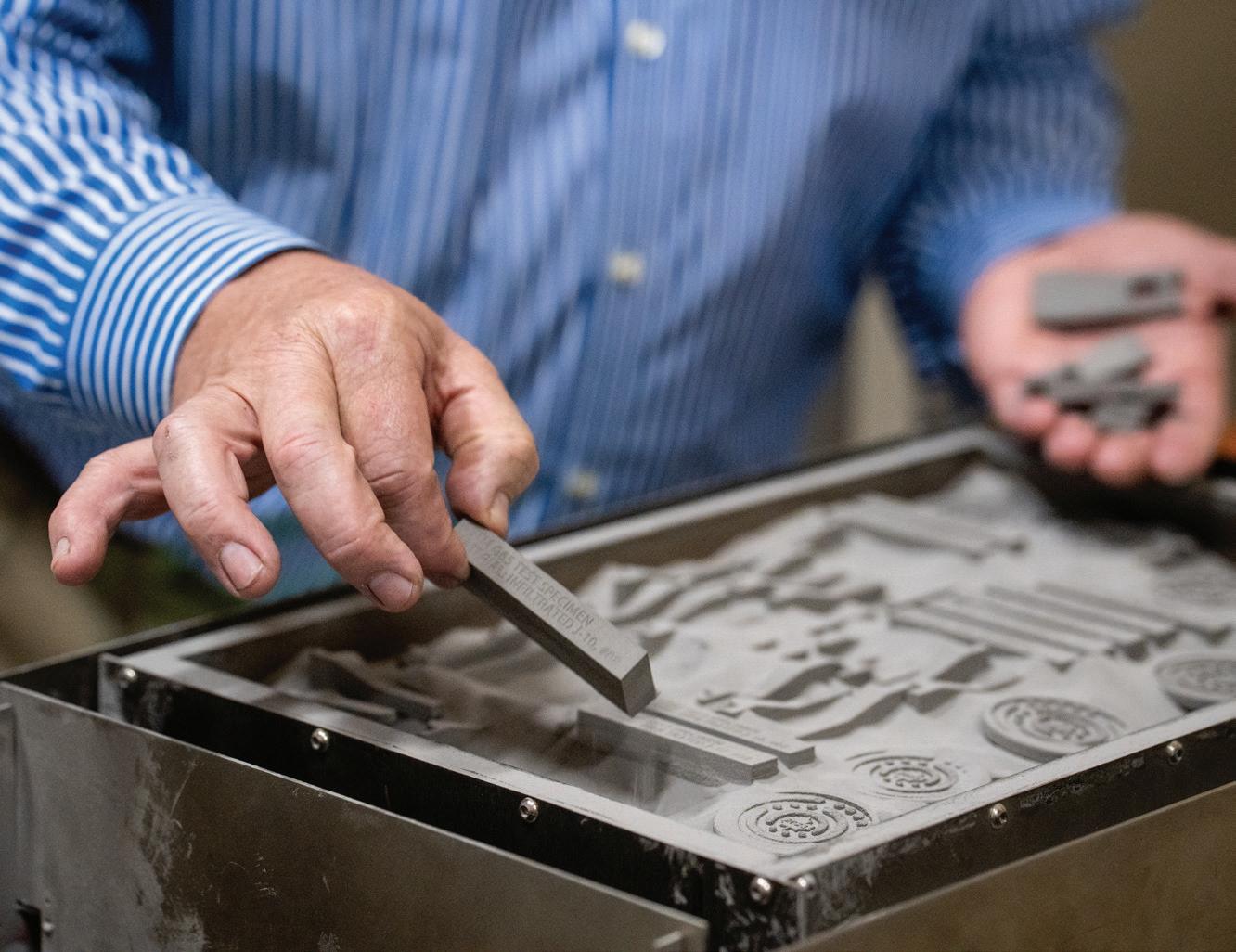

Giving a tour of the facility, Janssen showed an incredible range of manufactured parts made to stringent specifications — medical device prototypes used in knee and hip replacements, parts that help make clean drinking water, saxophone mouthpieces, turbine rotors to help make electricity, nonstructural airplane parts, parts for heavy-lift drones that can deliver packages, parts for deep oil exploration and parts for steaming in industrial coffee machines. 3DX is collaborating with several businesses in Whatcom County that have been profiled by Business Pulse, including Corvus Energy, Vicinity Motor Corp. and Samson Rope.
Although robots are gradually being added to the process, Janssen says it will be a long while before the human worker is replaced.
“Without the guy that has the knowledge, the robot can only do what you tell it to do,” he said. “You can go away and come back and find that the robot has made a whole pile of stuff that you’ll have to throw out.”
3DX runs with an efficient crew of about eight people who work mostly independently. Several workers in the subtractive area attended industrial technology programs at Bellingham Technical College.
“On the additive side, our workers are usually somebody that may or may not have been to engineering school,” Janssen said. “But more importantly, if they are excited and want to do this type of work, those are the people that are successful here.”
3DX also trains its workers.
“More and more of the trade shows are focused on education,” Janssen said. “Sometimes there are 50 classrooms, and they’re bringing in some of the best instructors from around the world.”
Whatcom Community College has added some new additive machines
that are used by students in its many engineering-related transfer degree programs, Janssen said.
Considered an essential business, 3DX wasn’t too impacted by the COVID-19 pandemic; like many other businesses, however, it has been affected by supply chain issues, worker illness and career shifting.
“We’re always working on a positive work culture here,” Janssen said. “I want people to want to be here. There’s the option to participate on the stock side as well, if someone is really engaged in what we do.”
Janssen says the choice to work four 10-hour days each week was a group decision among the workers.
Janssen’s team includes his mother, Marsha, who has been popping in since the 1980s to help with billing and accounting whenever there is a need.
Janssen is also active in the Society of Manufacturing Engineers in Seattle, which is starting a group in the Pacific Northwest for women in 3D printing. Janssen grew up in 4-H, so he has a soft spot for its programs, using his business to support local groups each year. The company also has built a truck for the local demolition derby.


The pace of technological innovation, especially within the field of manufacturing, is evolving and progressing so rapidly that it’s hard to keep up. But that’s what Janssen finds most exciting.
“I love to hit all the trade shows,” he said. “I’m always knee deep in all the latest and greatest. Metal printing is becoming more standard, and there are a lot of people chasing it down. We’re still considered an early adopter as far as west of the Mississippi; there aren’t a lot of shops that are metal printing and machining the way we are, especially the binder jet.”
Past Western Washington University students have investigated the feasibility of recycling more of the waste from subtractive manufacturing and the parts themselves.
Although many parts are still made using a subtractive process, as the technology improves, more and more are gradually converting to an additive process.
“We plan to buy more additive machines, because we see that as the future,” Janssen said.
The company has an open-door policy, he said.
“Fridays are the best day to reach us to discuss your project,” Janssen said. “We also have an annual shareholder meeting with tours so future shareholders can understand what we do.”
Janssen said he believes additive manufacturing will change the way we live, help humanity and make the world a better place, on a scale similar to the invention of the automobile, the airplane or the computer.
“For a strong economy, any country that has a good manufacturing indus-

trial base historically does well,” he said. “Our government knows that and is investing in that security by putting 3D printers in schools and making sure there are tech school programs to train those workers.”
3DX plans to expand aggressively in the coming years.
“We’re looking at additional locations besides Ferndale, either Eastern Washington or even out of the state,” Janssen said. “There’s so much more work coming at us we’re not even worried about competition right now. There are a lot of small shops like us. I’ve seen the stats; there’s 26,000 shops in North America that average 15 to 20 employees, and they’re responsible for making 76% of the parts that we use. It’s not all big business. It’s a lot of small businesses making what we need in our everyday lives with this innovative technology.” ■


Launching a business or expanding an establishment can be exhilarating and daunting. So how do you begin? Here, local experts provide research, analysis and guidance — specific to Whatcom County — fueled by unexpected and innovative thinking.

CJ Seitz, who has a mas ter’s degree in business ad ministration, is the director of Western Washington University’s Small Business Development Center. The SBDC is a recognized re source for small business owners start ing new ventures or seeking to grow in Whatcom County. Experienced in working with entrepreneurs across industries, Seitz is also a forceful pragmatist and a believer in pain — as much as inspiration — for starting and growing a business.
“I’m generalizing here, but I want to create a clear picture,” Seitz said. She explained that at the SBDC, certified
business advisers see two types of people looking to start businesses.
One type can be described as the “dreamers.”
“The dreamers are people who always have wanted to start a fillin-your-blank business,” Seitz said. “These entrepreneurs often lack a ‘reason why’ that is backed up by some kind of market research or analysis. They often pick a business to start around something they know or are passionate about rather than an established market need.”
The other type can be described as the “well-researched pain relievers.”
“These ethical opportunists,” Seitz said, “are people who look for a need or gap that exists in the community. Once a need is identified, they will then seek to determine the market potential for revenue growth. If these entrepreneurs create a sound business plan — and can analyze and execute at high levels over time — they fre-

quently succeed.”
On a granular level, as examples, small business services may include a steaming bowl of pho (see the feature in this issue on Plantage), native plants for landscaping, or an accountant’s summary. For clients, these services present positive values: nourishment, beauty and protection. But on the flip side are pain points addressed: How can I feed my family nourishing fare and not fast food? What trees do I plant to fulfill city requirements? How do I understand my financial opportunities and risks?
“The majority of business in Whatcom County is defined as small business,” said James McCafferty, co-director at West ern Washington University’s Center for Economic and Business Research. The United States Small Business
Administration, an independent agency of the U.S. government that provides support to entrepreneurs and small businesses, generally defines small businesses as companies with 500 employees or fewer. The very definition of “small” exists within a much larger span than most consumers may realize.

That span is illustrated in Business Pulse’s Top 100, this magazine’s annual list of private companies in Whatcom. At the top of the sales ranking, Exxel Pacific Inc. reports 181 employees at all locations (with 55 in the Whatcom region). Stockton’s Paint discloses eight employees total (with four in the Whatcom region). Whether a company employs hundreds, functions as a micro business (fewer than 10 employees during the initial year, according to the SBA) or is owned by a sole proprietor, that entity is a small business.
McCafferty pointed out: “Following the SBA definition, the prevalence is why there are so many resources to grow and protect small business in Whatcom.”
“If you’re launching a startup or expanding your small business, there should be one go-to source,” said Mark Harmsworth, director of the Small Business Center
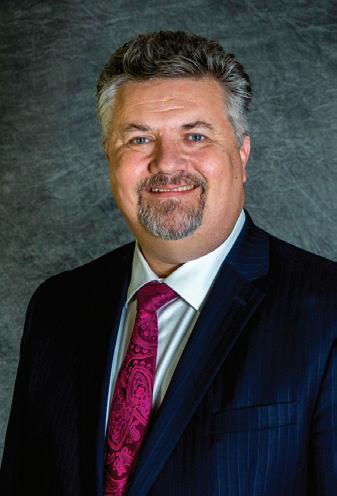

at the Washington Policy Center, an independent, nonprofit Washington state-focused think tank. Online, Harmsworth is a prolific columnist, advocating for a healthy small business climate and regularly writing about
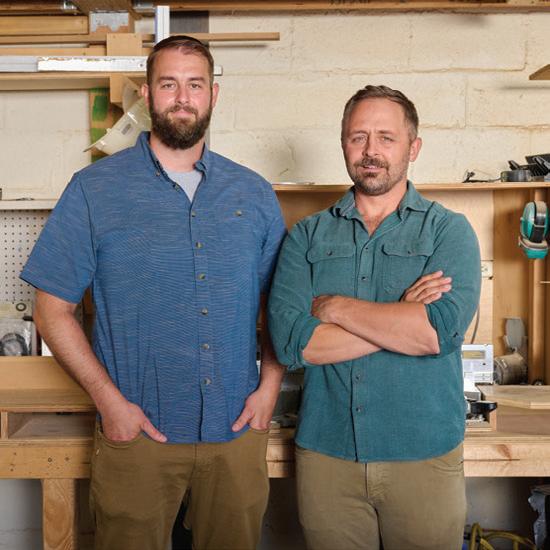
“With BECU, we feel like business partners.”Member Nik P., Co-Owner of Phinney Ridge Painting.
Bellingham in his coverage of the state.
Harmsworth cited the complexities of finding capital, controlling operating costs, understanding revenue streams and calculating profit and loss, even for sole proprietors and micro businesses. Being a small business owner himself, at the helm of an information technology service company, he easily connects with the pain points and joy (a range delightfully tucked into his last name, meaning liability and value).
By design in Whatcom County, the lineup of agencies certified to guide the launch and growth of small business — including free help — is substantive in funding and talent. (See sidebar for the complete, easy-access list to match a business at any stage with a resource.) All of these centers, staffed with experts who responded to interview requests within 24 hours, prize availability to inquiries. Across organizations, seasoned pros, scholars, analysts and self-described business wonks work together, fitting clients to the most appropriate resources.
With the heft of a history that goes back to 1964 as a part of the SBA, SCORE — a national network with local experts in Whatcom — provides free counseling to owners at all business stages, including planning, growing and exiting. SCORE advisers — current or past business owners who have “been there, done that” — are particularly skilled in counseling those new to startups. Jennifer Bussinger, SCORE Bellingham Chapter chair, said, “For a new business owner, you can figure out all the things you didn’t know you were supposed to be doing,
such as insurance, taxes and licensing, with certified and experienced counsel.”
What if you’re not ready to launch but are in that precarious idea stage, when you don’t know what you don’t know? “A mentor can help figure out all the details of starting a business,” Bussinger said, “such as planning, funding, legal, accounting, hiring and marketing.” Those rich mentoring relationships continue at SCORE. “For established businesses,” Bussinger continued, “experts answer simple questions, help develop more complicated strategies or churn out and assess new ideas.”
At WWU, school is open for business owners, too. Seitz’s team advises within the entire business life cycle, and the SBDC is known for small business expansion. At CEBR, McCafferty, alongside co-director and associate WWU professor Hart Hodges, works with the team on a larger scale with businesses, manufacturers, refineries, cities, counties and tribes (all clients who pay for requested custom
research). Through collecting primary data from interviews, surveys, focus groups and secondary data sources, CEBR experts provide customized research to respond to requests, creating economic impact studies and decision-making platforms to navigate a deeper understanding of Whatcom County and statewide markets.
This important network of experts exists to help small business owners engage with complexities, decrease personal risk and increase viability. An unexpected strength is their collaboration. Seitz calls it a “no wrong door” philosophy that leads not only to services but to a thriving ecosystem. These organizations refer to each other, making sure clients receive targeted support specific to their launch and growth goals.
“Thanks to the vision of our elected officials, an incredible entrepreneurial ecosystem exists in Whatcom County,” Seitz said. “Western Washington University puts a tremendous amount of university resources to work in the greater business community. As a result, we see strong, local, economic impact through the direct work of the SBDC as well as university investments and programs. Wherever you might enter our ecosystem, we’ll all work together to make sure you get to the resources that are the best fit for you.”
McCafferty pointed out the significance of small business success and growth. “Once a business starts to grow, especially to employees numbering 40 and above, that business begins to have a more significant economic impact in our community.”
Compared even to King County, Whatcom enjoys a wealth of resources for launching a business and for expanding one, too. The reason Whatcom has this robust ecosystem is that the success of small business has a huge beneficial economic impact for our county.
James McCafferty, co-director at Western Washington University’s Center for Economic and Business Research
Set between ocean and mountains, nationally known for bike trails and snowboarding, located on the Interstate 5 corridor between two international cities and augmented by a developing port, Whatcom is a geographically gifted county, growing in population.
Within this Pacific Northwest wonderland, Seitz credits large-footprint employers for creating small business viability. “Our corporations and larger companies bring talented people who fall in love with our county,” she said. “Spouses and partners come along, and many see opportunities to start their own businesses.”
Seitz commends colleges and the university for creating a workforce that transverses industries. “Students
come here from all over the world to study everything from environmental science to welding,” she said, noting the mix of four-year degrees and technical training. “After graduation, many make our county home.”
As a northern tier county, Whatcom is an international nexus. Canadian businesses locate U.S. subsidiaries here for easier access to American markets. U.S. companies locate here to ease access to Canada. “This creates a wide infrastructure base, from freight handling and customs clearing all the way to professional services,” Seitz said. “We see a significant number of small business startups to support these international enterprises.”
Consumer culture is international, too. “Canadian consumers visit our retailers for greater choice in goods, and U.S. consumers visit Canada for travel
experiences,” Seitz said. “The differences in how medical care is delivered in each country drive significant cross-border demand.”
While McCafferty comprehends economic systems specific to Whatcom, he cautioned against specialness, such as seeing the county as being a super-cultivator for small business. Like all those interviewed, McCafferty is good at checking the agog “if we build it, they will come” reaction. He wryly speculated that about every 14 months, the CEBR fields an inquiry from an overexcited reporter, lured by a biased source — perhaps a financial services company looking for clients — touting this county as an in-
Launch with SCORE: Get free, expert advice from professionals who have lived and breathed small business. SCORE’S Bellingham chapter will guide you through creating and growing a business, recruiting talent and understanding the different types of funding. score.org/bellingham/local-mentors
Grow with the Small Business Development Center at WWU: The SBDC is your go-to team for small business help. You’ll connect with a certified business adviser who can help you create a business plan, develop financial forecasts, obtain financing and handle human resources. sbdc.wwu.edu
Develop a deeper understanding with the Center of Economic and Business Research at WWU: Through collecting primary data from interviews, surveys, focus groups and secondary data sources, CEBR experts provide customized research to respond to requests, creating economic impact studies and decision-making platforms to navigate a deeper understanding of Whatcom County and statewide markets. cbe.wwu.edu/cebr
Understand international business with the Border Policy Research Institute at WWU: Doing business with Canada? The BPRI promotes research on policy issues affecting border crossings between British Columbia and Washington state. bpri.wwu.edu
Start with the Northwest Innovation Resource Center: The NWIRC works with early-stage entrepreneurs and inventors to bring their ideas to life. nwirc.com
The below compilation of networking groups is not a complete list but a starting point to grow your personal business network.
Chambers of commerce in Whatcom County: countyoffice.org/wa-whatcomcounty-chamber-of-commerce/ includes links to the chambers of commerce for Birch Bay, Bellingham and Whatcom County, Ferndale, Glacier, Lynden, Maple Falls and Point Roberts.
Choose Whatcom: This project helps business professionals find the information they need to be successful. Co-funded by
the Port of Bellingham, the City of Bellingham and Whatcom County. choosewhatcom.com
Downtown Bellingham Partnership: Nonprofit dedicated to furthering the vibrancy and growth of downtown Bellingham. downtownbellingham.com
Fairhaven Merchant Association: Business owners, nonprofit organizations, residents, neighbors and friends who support the preservation and business success of Fairhaven Village. enjoyfairhaven.com
Sustainable Connections: Creating thriving communities through innovative ideas, collaboration and action. sustainableconnections.org
Whatcom Business Alliance: The WBA is the ears, eyes and voice for Whatcom County’s business community. Members improve their respective businesses and work closely with community leaders to promote public policy that supports a healthy business climate and a vibrant economy. whatcombusinessalliance.com
credible incubator for, say, microbreweries. “The fact is that for small business success, we’re not much different than any other county.”
“Business success is highly correlated to population,” McCafferty continued.
Drawing on statistics, he used the comparative example of the Starbucks headquarters building located in Seattle’s Sodo neighborhood. (Sodo used to mean “south of the (King)dome” and now means “south of downtown.”)
“In that single building, some 5,000 employees exist — more people than any entire business in Whatcom — and that is just one single location for a much larger company,” he said.

Hodges emphasized the rigor required for small business. He smiled, saying, “We’re looking for the ‘20-year overnight success.’”
The ironic description underscores the quality of endurance needed in any business leader — someone who can perform well over a long period of time. Also, analysis is a valued skill, as any owner systematically must examine, among many markers, industry standards, sales targets and results. On an emotional level, small business leaders must possess affinity, to connect with clients whether they are critical or positive.
From experience in guiding clients, McCafferty said what small business needs most are sound research, resources and better planning.
“Compared even to King County, Whatcom enjoys a wealth of resources for launching a business and for expanding one, too,” he said. “The reason Whatcom has this robust ecosystem is that the success of small business has a huge beneficial economic impact for our county.” ■
Tom Dorr, a Whatcom Countybased business consultant, owns six small businesses and has supported hundreds of local businesses over the past 25 years.
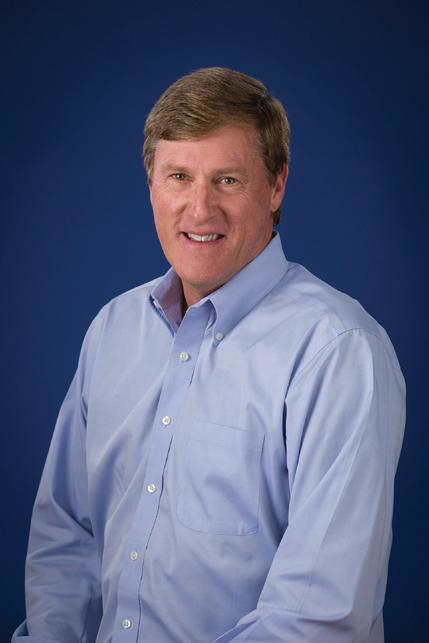
Drawing on his experience, Dorr reflected on established small businesses that have successfully contended with their own startup challenges.
“Think of some of our flagship small businesses – Village Books, Hardware Sales, Yeager’s,” he said. “They are deeply committed to their customers and this place we call home, and in turn, our community is extraordinarily loyal.”
For anyone considering a small business launch, having an identifiable platform is essential. Dorr easily ticked off essential questions that small business startup owners must answer:
• Where is your funding going to come from?
• How much revenue will you need to get you to profitability?
• How much revenue will you need to get you to positive cash flow?
• Have you written a business plan that identifies the following elements?
› target market
› competition
› suppliers
› financial projections
› potential risks and responses
› core competencies
› unique selling propositions
› pricing of products and services
• What is your marketing plan?
• What does success look like for your business and for you personally?
To take advantage of the 2023 paving season, Loren VanderYacht and (silent) partner Ken Otter didn’t have months to meticulously plan operations and business strategy for their startup company, Lynden-based Asphalt Northwest. The time from initial concept to launch was a mere five weeks. Launching a capital-intensive business so quickly and without any guarantee of work would rattle the nerves of most new business own-
ers. Yet VanderYacht was confident the work would be there. Success in the paving industry, he says, is built on relationships among people, not businesses.
“On a daily basis, my customers primarily only worked with me, and they got to know me and could depend on my ensuring their project was done right the first time,” VanderYacht said. “Many of these customers became repeat customers. Relationships were
built. When I changed companies, often the customer would follow, so I was confident we could continue many of those relationships — many whom I’ve worked with now for 20plus years.”
In business since March, Asphalt Northwest offers paving and grading services to the residential, commercial, industrial and municipal markets and primarily serves Island, Skagit, Snohomish and Whatcom counties.

It’s a locally owned company that proudly employs some of the top area professionals, also all residents of Whatcom County.
Given VanderYacht’s enthusiasm for Asphalt Northwest’s achievements this year and his appreciation for the relationships he’s formed in a career that spans more than three decades, you’d never believe that a career in the paving industry was not his calling.
When considering employment opportunities as a young man, VanderYacht didn’t aspire to a career in the asphalt paving and grading industry.
“I wasn’t drawn to asphalt,” he said. “I just needed a job. The first asphalt company I worked for, I started out at the bottom. I earned $9 per hour
weighing trucks.”
For 31 years, VanderYacht worked his way up the ranks, from dispatching to superintendent and then to estimating. He’s worked for small, family-owned companies and larger corporations, all in Whatcom County. What kept him in the industry were the relationships he built with co-workers and customers.
“Over the years, co-workers and customers have become friends,” he said. “I have some customers I’ve worked with for over 25 years.”

In early 2023, VanderYacht was ready for a change and decided to seek a partner to open a paving company. Around this same time, Dylan Otter was also looking to start a paving company.
“Loren was my supervisor when we worked together in the past,” Dylan
Otter said. “I left the industry to work for my father, Ken, at LandTek, but I wanted to return to the paving industry, so I approached Loren about a potential partnership. I thought the worst case was he may say ‘no.’ I had no idea he planned to go into business for himself. The timing worked out.”

In February 2023, VanderYacht and the Otters decided to pursue the business venture. VanderYacht currently serves as company president and Dylan Otter as asphalt superintendent.
However, paving season was on the horizon, and if they were to capture any of this season’s business, they needed to move quickly. They fast-tracked the business and incorporated on March 23. Such an aggressive schedule

brought two major challenges.
First, the partners believed that new, top-quality equipment that is clean and presentable would help represent the high standards they would provide at every level of the business. However, they struggled to find all the equipment they needed locally on such short notice. Some equipment was sourced from as far away as California and Arizona.
Their biggest hurdle was hiring an
experienced crew — and quickly — to be ready to roll at the start of paving season around late March. In paving, a quality finished product is often dependent on the skill of the crew.
“This is not the type of work you can just take someone and simply train them to do it and send them out,” said Leah Roorda, the company’s asphalt administrator. “It takes years of experience to master it.”

Hiring a skilled crew was critical,
VanderYacht said.
“We knew we had to have experienced, highly skilled people,” he said. “That would be key to our success. Inexperience can lead to lower-quality work, and as a business we could have been finished not long after we started.”
VanderYacht and Otter needed topnotch pavers to solidify their reputation from the get-go as a business that puts quality first. To recruit and retain the best, Asphalt Northwest would need to offer top pay and a robust benefits package. The company offers competitive wages, fully paid medical, dental and vision insurance for employees and their families, a retirement program, and paid leave.

Together, they reached out to previous co-workers with whom they had established relationships and knew the quality of their work.
“Between Loren and myself, we’d worked with everyone on our team at some point,” Dylan Otter said. “We knew their work history. They had a lot of trust in us and in Loren’s experience.”
That gave the team a lot of options, VanderYacht added.
“We were able to be selective,” he said. “Our paving crew averages 14 years of experience. This is one of the best crews I’ve had in 31 years, and

not just skill set-wise. We have a team of truly great people. We’ve become a family.”


While some companies currently struggle with staffing shortages, this has not been a problem for Asphalt Northwest. VanderYacht says qualified people continually knock on their door.



While the economy has been slug-
gish this past year, VanderYacht says that it hasn’t had much effect on the paving industry, because there is still plenty of work available from new housing developments and commercial projects.

In fact, the newly formed company has not struggled to acquire the level of work needed to keep its crew busy. Otter explained that since customers tend to work closely with a company’s estimators, schedulers and




site crews, rather than the top-level ownership, it wasn’t difficult to be the paver of choice for previous customers’ 2023 projects.
“The local contractors know who we have working for us — who the foreman is, who is running the paver, etc. — as they’ve worked with them at some point over the years,” he said. “There is a lot of trust in Loren and the capabilities of our crew.”
Lane Stremler, president of StremlerGravel, concurs. He was worked with VanderYacht for 20 years, as did his father and uncle before him. Stremler has upcoming projects on the books with Asphalt Northwest.
“Problems can arise in construction,” Stremler said. “That’s where our work history with Loren is important. We know he’ll have our back. There is a lot of value in that. When Loren and I discussed the new business, I had two key questions for him. First was about the equipment, which has a lot do with the finished product. Asphalt Northwest has brand name, high-quality equipment. Second was the crew. For asphalt, you need experience both in running the machine and on the ground. He told me who he had working for him. He’s got a highly
experienced crew behind him.”
Asphalt Northwest also offers one of the best warranties in the area — two years on workmanship and materials, twice the industry standard.
With several projects now completed and available for potential new customers to view, it will be a much smoother road for the company to land bids with companies with which there has been no prior relationship.
“I’ve looked at projects they’ve completed,” Stremler said, “and the quality of work is impressive.”

VanderYacht expects Asphalt Northwest to finish strong in 2023, thanks in part to established relationships decades in the making. His goal
for 2024 is to add some equipment and a couple of additional employees. VanderYacht and Ken Otter’s 10-year plan is to retire and pass a highly successful business down to their sons.

While Asphalt Northwest is still new and the team is working hard to establish its place within the local paving industry, the experience so far has been gratifying.

“The two most rewarding things are that the employees that previously worked with us made the decision to move to our company,” VanderYacht said. “And several customers made the decision to follow us as well. Without those, we wouldn’t be having this conversation today.” ■
Over the past thirty-nine years, from their offices in Bellingham the lawyers of Chmelik Sitkin & Davis P S. have quietly built a reputation for responsiveness, professionalism, and quality ser vice for business and government client s throughout Washing ton. We are excited to announce that we have rebranded with a new name as part of our firm’s ongoing growth. While our firm name has changed from Chmelik Sitkin & Davis P.S. to CSD Attorneys at Law P.S., our highest priority remains our commitment to our clients. The firm looks back with great pride at the team of talented lawyers that decided to call Bellingham home and the technological innovations it embraced that support a statewide practice. We look forward with confidence as we transition to the next generation of principal lawyers and we continue to add talented lawyers to meet the needs of our clients now and into the future.
Recognizing that we thrive as a team, we congratulate Frank Chmelik, Jon Sitkin, and Seth Woolson, who have been selected to the 2023 Washing ton Super L awyers list and Matt Paxton who has been selected as an honoree of the Rising Stars list . We note that Frank has been selected ever y year since the list star ted, and Jon has been selected for the past sixteen years. We acknowledge Seth Woolson on his first selection to the Super Lawyers list and Matt Paxton as a first-time honoree of the Rising Stars list. Only five percent of all lawyers in Washington are selected to this prestigious Super Lawyers list.
WECU went the extra mile ... to help us figure out how we could [expand our business] and they made it happen.
Owner, Carl’s Mower and Saw CARL LEVIEN







Heather Lea
I’m sure many of you know how smart dogs can be — but a service dog? That’s another level. If I could teach my pup to fetch drinks, snacks and dropped items, I’d be, well, a very lazy person.
All joking aside, these furry angels take their jobs very seriously and can change the lives of those who depend on them.
Take 8-year-old Chloe for example. Chloe was born with Corneila
de Lange syndrome. She is nonverbal and suffers from epilepsy. Chloe’s service dog, Drake, is trained to take care of Chloe. In fact, he won’t leave the house without her and stands his ground until Chloe is alongside him. Drake carries Chloe’s medications in a harness bag. When she has a seizure, Chloe’s parents can call Drake, and he’ll come right to her side, if he’s not already there. Since Drake joined the family, Chloe’s seizures have decreased.
The heartwarming bond between the two is clear.
Brigadoon Service Dogs provides trained dogs to help veterans, children and adults with physical, developmental and behavioral health disabilities in a service area that includes Washington, Oregon, Idaho, Montana and even Alaska and British Columbia.


The biggest hurdle for Brigadoon, according to Kevin Ryan, the executive director, is finding volunteers to train

puppies into adult service dogs. Read more about Brigadoon Service Dogs and how you might be able to help. Or how Brigadoon might help you.


 Kevin Ryan Executive Director
Kevin Ryan Executive Director
Business Pulse: How long have you been in the executive director role?
Kevin Ryan: I recently joined the Brigadoon team in March 2023.

BP: What is your formal training/ background, and how might that help you relate to your clients?
KR: I spent the last almost two and a half decades as a commissioned officer in the Marine Corps. During that time, I was afforded the opportunity to lead some of the Department of the Navy’s largest business activities as well as participate in combat in Iraq. I now use that developed business acumen to lead Brigadoon on a path of development and growth to serve the massive community need for assistance dogs. As a natural empath, I find it easy to relate to our clients. But I will admit that my experiences in the military do allow me the ability to really relate to our veteran clients on a personal level.
BP: What prompted the change from active duty in the Marines into joining Brigadoon Service Dogs?
KR: It was really time for my family and I to end our years of service in the pursuit of other goals. When the Marine Corps’ plan for the next seven years of my life differed from my own, it only underscored that fact.
BP: What specific attributes cross over from Marines training to what you’re doing now?
KR: I believe a great leader can thrive in any environment, and I am certainly afforded that opportunity in leading this amazing team of dedicated individuals. However, I also really get to put to use the many lessons learned and skills developed through years of running Department of Defense acquisition programs and directing the activities of two of the Navy’s largest aviation maintenance, repair and overhaul centers.
BP: Do you have any personal and/ or business accomplishments you’d like to share?
KR: I am a pretty humble person by nature. As such, I struggle to laud my own accomplishments, preferring to focus on the accomplishments of those I have the fortune to lead. I have admittedly been blessed to lead an extraordinary existence, and the list is pretty long of accomplishments many would consider remarkable. I have led the Navy’s only overseas aviation
maintenance, repair and overhaul organization, directed production for the Navy’s largest MRO (maintenance, repair and overhaul) center, orchestrated the operations of the Navy’s largest developmental flight test organization, and flown thousands of hours in military jet aircraft. But, honestly, my favorite accomplishments have always been watching those I have mentored succeed.
BP: Are you part of any committees/ organizations?
KR: Not yet! I am really excited about the opportunity to get more involved in some of the city and county committees once we have been here in Bellingham long enough to be eligible. I am also looking into potentially being able to help with the Bellingham Airport Advisory Committee.
BP: What do service dogs do, and how do they help your clients?

KR: We pair dogs with clients who have disabilities that can be mitigated by tasks the dogs can perform for the client. As a very simple example, a dog could retrieve a dropped item for a client with a mobility limitation or create space (or grounding) for a client with a psychological need for that task. You might see our dogs perform tasks like pressing an assistance button to open a door, help pull off a coat sleeve or retrieve necessary medication from a cabinet or drawer.
BP: What does “placing” a dog mean?

KR: When we place a dog, the dog and client are teamed as a pair to work together. The client then acts as a guardian for the dog once they leave Brigadoon following an intense two-week training program here in Bellingham, where they learn to work safely together and among the public. We then work with that client team over the years to make sure that they are successful as a team with all they need to be able to do together.
BP: Can you tell us more about other programs at Brigadoon Service Dogs?
KR: We have placed one facility dog with the Bellingham Police Department and are working with them to help really refine our program for the future development of facility and courthouse assistance dogs.
BP: Brigadoon Service Dogs works with inmates; how so?
KR: We have cooperative programs at four correctional facilities in Washington, where our dogs first go for their intermediate training around the age of 8 months. The dogs stay in prison
with the inmates (living in their cells with them) for approximately three months. While there, the incarcerated trainers reinforce cues the dogs already know while also introducing new cues to attach to desired behaviors, using only positive reinforcement training techniques.
BP: How would a business or organization learn how to be service dog friendly?
KR: Brigadoon Service Dogs provides a free half-hour training on Americans with Disabilities Act rights relating to service dogs, service dog owners and owners of public establishments.
Some of the things we cover are what you can and can’t ask someone with a service animal, what your rights are as an organization, how to make
your establishment service dog friendly, and how to minimize liability.
All organizations that go through our training will be given a Brigadoon sign to display and will be added to our list of service dog-friendly establishments. We will also provide printouts and resources for you and your employees.
BP: What details can you share with us about your future goals/front-burner projects at Brigadoon Service Dogs?
KR: We are looking to support the great need for service dogs that is in the community. To do that, we will be relocating to a new location in the next six months to support that growth. We have a couple of promising prospects for where that will be, but ultimately, we will be staying here in Whatcom County.
BP: What are some challenges you and/or the business face?

KR: Volunteer and funding stability. We depend on the many hours of dedication shown by our volunteers and are immensely thankful for all who give so freely of their time and energy to support Brigadoon. But that kind of dedication can be hard to come by.
One particular group that is always a challenge to source is our volunteer puppy raisers. We can’t do this without their support, and we are always on the hunt for more. They are one of the most critical and hard to find resources out there.
At the same time, stability in revenue is huge, as it allows us to adequately resource our program to develop the dogs over the course of the almost two years it can take to get a dog from ac-
quisition to placement in service. The total cost for a dog’s education over those two years is $30,000. Our donors and supporters keep us able to do what we do, and we are hugely appreciative that they have chosen us as the entity and cause that they want to support.
BP: What is your favorite part about doing business in Whatcom County?
KR: How welcoming people are to me and my organization. Affording us the access we need to be able to successfully get our dogs trained to the level required to be placed into a successful life of service is incredibly appreciated and helps us do what we do. They say it takes a village. Every dog placed by Brigadoon is a Whatcom County success story. My personal thanks to all involved! ■
WHALE WATCHING LUNCH CRUISES

FRIDAY HARBOR SIGHTSEEING
BEER & WINE TASTING CRUISES
CRAB DINNER CRUISES
SUCIA ISLAND PICNICS
DECEPTION PASS
BIRD WATCHING

Our fish is hand battered with locally made beer. Always served with house made coleslaw and tartar!


Since our establishment in August 2004, we have placed more than 100 service dogs and have established youth programs in a local high school and alternative school for at-risk youth. We have also started a program for veterans, as well as prison programs at Cedar Creek Correctional Center in Little Rock, Washington Corrections Center in Shelton, Stafford Creek Correctional Center in Aberdeen, and Coyote Ridge Corrections Center in Connell. The dogs live with and are trained by the inmates.
In 2012, we received our accreditation with Assistance Dogs International and were recognized by the Washington State Senate, receiving Resolution No. 8688. As founder of Brigadoon Service Dogs, Denise Costanten received The Golden Tennis Shoe Award, presented by U.S. Sen. Patty Murray; the Volunteer of the Year Award from the Washington State Department of Corrections, presented by Washington Gov. Jay Inslee; and the Volunteer of the Year Award from Whatcom Dispute Resolution Center.
We’ve trained dogs for children and adults with a variety of disabilities, such as hearing or visual impairments, cerebral palsy, multiple sclerosis, post-traumatic stress disorder and other mental health diagnoses. We’ve also helped people with medical conditions requiring dogs trained to alert to an impending crisis.
Read more success stories and learn how you can help at brigadoondogs.org.

Planning for the future is key for small business owners to effectively navigate the change in today’s economic environment. As business owners look to the next five to 10 years, they should be thinking about a few things. Change is always an opportunity, and when matched with the right planning, it can help propel your business rather than be a setback. In this article, we’ll discuss seven areas in which to focus your planning.
Monitoring cash flow and planning for expenditures is critical, especially during times of economic change. Ensure that you have a solid budget and are tracking the budget to actual. You will also want to monitor and manage your collections in a timely fashion and assess finance charges on late payments.
One consideration owners should evaluate is whether to finance purchases or buy outright. With rising interest rates, it is important to determine which is more advantageous. Nontraditional lending opportunities also abound. Some people have money to lend to businesses for an interest return.
To ensure preparedness, it is vital to have well-prepared and up-to-date balance sheets, income statements and cash flow statements. Timely review of this financial information allows for informed decision-making.
Labor shortages and retention issues continue to impact all industries. As a result, companies are reevaluating their retention strategies. It is important to remember that your team is essential to the success of your business. Evalu-
ating your employee benefit plans can significantly improve performance and stability. Your plan is more than just a component of your benefits package; it represents trust. Benefit plans are instrumental in driving value, rewards and employee retention for your team.
For a business to survive, it must be able to adapt. Whether changing your customer base, improving your supply chain or embracing new technology, the most important factor when pivoting is making informed decisions. Before implementing changes, consult your trusted business advisers to ensure your accounting and tax strategy can accommodate the pivot.

Navigating unpredictable events is inevitable for business owners. When faced with change, you must make tough choices — but you don’t have to face them alone. Your CPA can be an asset, guiding you to make informed

decisions that safeguard your vision and financial stability. Your CPA can assist with optimizing your financial records, reducing tax burdens and helping you make sound choices in the face of unprecedented challenges.

Business owners should also regularly consult with their CPA to plan ahead. Although we do not anticipate any substantial legislative changes in 2023, meeting with your CPA to discuss what may be on the horizon is important so you can plan accordingly. By staying ahead of these shifts, you can ensure the profitability of your business is not suddenly impacted.

Studies have discovered a discrepancy between people’s anticipated and actual retirement age. For example,

those who have experienced strong portfolio performance and have diligently saved may have the opportunity to retire sooner than expected.


If you’re considering stepping back from your business in the next five to 10 years, beginning the planning process for a seamless transition is crucial. Start by understanding the current worth of your business compared to your desired sale price. Identify your ideal buyer and work to close any value gap.



Privately held companies are showing more interest in acquiring small businesses, creating new opportunities for potential sales. Whether you plan to retire soon or in the coming years, it’s important to start thinking about your succession plan now. Acting early will ensure your legacy continues
even after you step away from daily management.
At VSH, we have a team of experts who can help business owners embrace change. If you would like to learn more about our services or discuss the strategies addressed in this article, visit vshcpa.com. ■
Madison Price specializes in tax compliance and planning for businesses. She enjoys helping clients from a wide array of industries, including real estate, construction, manufacturing and hospitality, to understand complex tax concepts. Price takes an empathic approach to her work and strives for her relationships with clients to be more than just the “numbers.” She is a member of the Association of International Certified Professional Accountants and the Washington Society of Certified Public Accountants.
 Mark Harmsworth
Mark Harmsworth
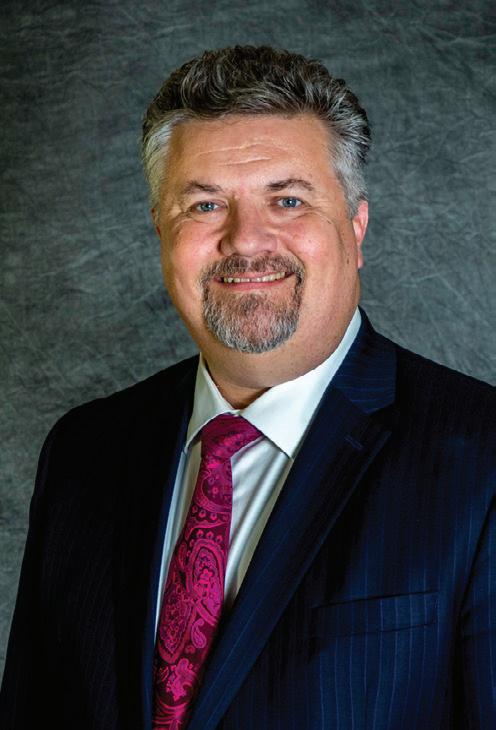
Voters in the city of Bellingham will be asked this November to approve a $1 hike in the minimum wage over the state minimum wage ($15.74), followed by an additional $1 in 2025. Passage of the initiative would make Bellingham’s one of the highest minimum wages in the state. Following in the footsteps of the cities of Seattle and SeaTac, the wage increase would destroy jobs, reduce available work hours and cause further inflation. Businesses would relocate away from areas that have high minimum wages, creating longer commutes for workers or the elimination of jobs completely.
Nowhere is the harm imposed by a high minimum wage demonstrated more clearly than in Seattle, where the city council has aggressively increased the minimum wage over the past few years. The rash of restaurant closures and lost jobs can be attributed, in many cases, directly to the additional fiscal cost the minimum wage increases have caused.
Seattle residents saw stores closed and jobs eliminated when the Seattle City Council voted to add an additional $4 per hour during a state of emergency. Bellingham voters already rejected hazard pay when they voted against a labor-funded initiative to add $4 in hazard pay to Bellingham workers.
The group behind the latest attempt
to raise the minimum wage, which was always intended to be a part-time, temporary work or summertime wage and not a full-time wage, is backed by several groups, including the International Federation of Professional and Technical Engineers Employees Union.
A recent study by the University of Washington has shown that Seattle’s $15 minimum wage “did little to offset widening inequality.” This conclusion matches the research done across the United States and work that the Washington Policy Center has done over the past decade on the effect of artificially high minimum wage policies set by the government.
Passage of the initiative would put Bellingham at a disadvantage with
neighboring cities, which would have a more competitive business environment for local businesses.
The obvious result of a high minimum wage is the pressure it puts on
es in negative fiscal territory. Business owners are often forced to cut operational costs — in other words, they are forced to lay off workers or reduce their hours.
workers’ overall incomes. The results of a high artificial minimum wage are exactly the opposite of the proponents’ desired result. High minimum wages reduce income and destroy jobs for those lower-wage earners.
The good news is that all of this can be fixed with a change in policy and an undoing of the regressive taxes and policies that are currently in place. Washington is a beautiful place to live; our government should be working to make it affordable and attractive to business to want to be here.

small business owners trying to make payroll. In many service industries — such as the restaurant, retail and hospitality industries — profit margins can be as low as 3%. Mandates to increase the minimum wage could wipe out that profit and put business-
As the University of Washington study concludes, “local minimum wage laws are not likely to substantially reduce earnings inequality.” It is obvious that government controls on wages, such as minimum wages and hazard pay, have no long-term effects on
Voters should reject the minimum wage hike this fall to allow Bellingham to compete for jobs and keep costs low. ■
Passage of the initiative would put Bellingham at a disadvantage with neighboring cities, who would have a more competitive business environment for local businesses.
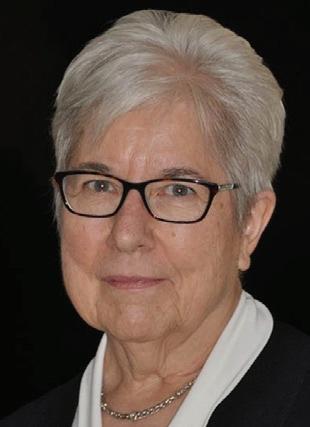
One of the best skills a small business owner or team member can possess is the ability to analyze data.

Many people, first-time business owners especially, may fear even the mention of data analysis (mining, modeling, cleansing!). But in our everyday lives, all of us consciously analyze data thousands of times: What time do I get up in the morning to enjoy my exercise workout? At my child’s school, what programs — from track to math club — are highly rated extracurriculars? For my monthly budget, how much am I spending on eating out?
In the workplace, approaching sets of data need not be scary. At the Northwest Innovation Resource Center in Bellingham, experts help entrepreneurs and business owners analyze data. Just like in our personal lives, asking questions is the way to start.
Imagine a bakery trying to determine how many loaves of bread to bake each morning. Of course, the best daily outcomes are that everyone who wants to buy a loaf can and that there aren’t any leftover loaves.
Without a crystal ball, the bakery needs data to plan. Posing questions about goods and services reveals key content.
• How much do raw ingredients, energy and labor cost to produce a loaf of bread?
• Historically, how much has the store sold on each day of the week? During a particular season? Around a particular holiday? And, at what revenue per loaf?
• Are there reputational impacts — positive for demand or negative for reliability — to running out of bread?
• Do day-old loaves sell at a discount the next day?
In answering these questions, the business owner can anticipate error margins to determine the best guess of daily loaf count. A set of data — produced by answering basic questions over time — can help incrementally improve efficiencies and profits.
At any construction site, the earthmover — the wheeled dozer with hydraulic drives that pushes large masses of earth — must work. A breakdown doesn’t affect only the preparation for a structure’s foundation. A malfunc-
The Northwest Innovation Resource Center
In recent years, the world has experienced a massive increase in the capture, democratization and ability to analyze data. Join Josh Nash as he shares his perspective on how trends including IoT, Big Data and AI are playing a major role in the current round of innovative solutions and startups envisioned to create value and enable productivity, with particular focus on how security, privacy and public policy need to be woven into create responsible, sustainable solutions.
tion drives up costs for taking revenue-driving equipment out of service, wreaks havoc with schedules and budgets, and affects tempers and the company reputation.

The pros at Birch Equipment understand the importance of sound machinery. Generally, they use a threestep data process, accepted across industries, to keep equipment functioning and clients happy.



1. Access your data set. Birch tracks each piece of equipment, how often predictive maintenance occurs and outliers, such as when the equipment malfunctioned on the maintenance schedule.
2. Organize the data. The company organizes data by machine, scale of job and industry. Performing preventive maintenance ahead of need makes it easier to forecast costs and schedules.
NWIRC. In 2011, business leaders formed the Bellingham NWIRC to give back and support other entrepreneurs in their startups. For more than a decade, NWIRC counselors have put together customized strategies, including data analysis know-how, to help clients launch new establishments.
If you’re building your business, data sets become more complex. On Thursday, Sept. 21, NWIRC hosts Columbia University graduate and speaker Josh Nash, who will demystify the process of using data to improve business results. He will focus on how the most recent trends in data collection and analysis contribute to innovations in your business.
TheLab@everett
2000 Hewitt Ave., Suite 105, Everett
For event details, visit https://nwirc.com/events
About the presenter: Speaker Josh Nash is strategic but loves the details harvested from data. He’s served in sales and business operations in medium to large companies, focusing on how to reduce friction in processes and systems. A graduate of Columbia University and the Kellogg School of Management, Josh loves asking questions about business and using data to find answers.
3. Leverage data to answer questions. Predictive maintenance can lead to waste due to replacing parts before they have truly worn out. Birch uses data to help minimize waste and deliver maximum customer service.
What if you don’t know where to start or how to dig deeper with data?
First-time entrepreneurs can receive assistance, in a supportive learning environment, from the experts at the
Data analysis may seem overwhelming at first. But with practice and help from experts, you can follow the lead of Birch Equipment and leverage data to do powerful work, including increasing profits and delivering on your mission.
The Northwest Innovation Resource Center helps entrepreneurs create, build and grow innovative businesses that strengthen the economic diversity of Northwest Washington.
Diane Kamionka, NWIRC’s executive director, has a background in facilitating corporate growth and entrepreneurial startups. In 1987, she founded Cintech Solutions in Ohio and served as president and CEO. Since relocating to Washington, Diane established the Northwest Agriculture Business Center and helped create NWIRC.
 Jennifer Noveck
Jennifer Noveck
Recovery from disaster and building resilience are ongoing processes. As the two-year anniversary of the November 2021 Nooksack River flood approaches, many Whatcom County businesses and families are still recovering from the devastation. One tool that aided business recovery in Whatcom County was the Northwest Disaster Grant Program.
The Northwest Disaster Grant Program was created with the approval of House Bill 1957, sponsored by state Reps. Alicia Rule and Alex Ramel. As a result, $10 million was allocated by the Washington Legislature for distribution to small businesses in the federally declared disaster areas, which included Whatcom County, the Lummi Nation and the Nooksack
Indian Tribe. The Washington State Department of Commerce administered the program in partnership with the FORWARD program administration platform and local partners Lummi Indian Business Council, Port of Bellingham, Whatcom Community Foundation and Western Washington University Small Business Development Center. Combining Whatcom County and both tribes, there were 81 applications for funds, resulting in $5.69 million in successful awards distributed to impacted businesses by the end of June 2023. Approximately 20 of those awards went to Whatcom County farms and dairies.
Gurmit Gill of Mountain View Blueberry Farms reported that the grant funds enabled the farm to rein-
vest everything into the business. Encouragingly, the farm’s blueberry plants have rebounded, as have the fields and soil. When asked if he had recommendations for other small businesses and farms to be more resilient and prepared in the future, Gill suggested that businesses “buckle down and really watch your expenses.” Given the changing weather patterns, including the heat dome in summer 2021 and the flood in fall 2021, he encouraged small business owners “to be prepared for and expect lean years in the future.”
The Northwest Disaster Grant funds were critical for many of the surviving businesses; however, recovery is far from complete.
“Recovery tends to be more difficult for small businesses, those vulnerable
to supply chain problems, those facing disrupted markets, and locally oriented businesses in heavily impacted neighborhoods,” stated a scientific study reviewing small business recovery from COVID-19 closures and other recent disasters throughout the United States published in the Journal of Disaster Risk Reduction in October 2022.
Economic development service providers witnessed this on the ground. Asche Rider, a certified business adviser at the WWU SBDC, provided extensive direct outreach and technical assistance to 42 of the 81 businesses in Whatcom County that applied to the grant program. Rider found that most businesses felt they were still recovering from flood losses even after receiving grant funds. Some businesses have rebuilt but are now trying to recover their displaced customer base. Other businesses began repairs as grant funds became available, and several businesses were still seriously considering closing due to ongoing losses and hardship.
Nicole Sandoval Postma, former Sumas Chamber of Commerce president and owner of Loca Mocha Sumas, echoed these findings. Postma recently moved her business into a new location in Sumas, with a grand

Did you know that September is National Disaster Preparedness Month?
Find tools to make a business continuity plan at www.ready.gov/businesscontinuity-plan
opening on Aug. 12. Though a new location, the building had suffered extensive physical damage due to water inundation, resulting in high repair costs for Loca Mocha. She noted it is important to remember that the experience in Sumas was compounded by additional prior economic losses due to the COVID-19 mandated closures and the closure of the border with Canada. By the time of the flood, many businesses were already reeling. For some, the flood was a blow too big to overcome.
When asked what businesses can do to build resilience and prepare for future events, Postma’s recommendation was to “get to know your community and the resources available,” not only in your immediate area but also at the county, state and federal level.
“We focus on small businesses and think local first,” Postma said, “but we forget that when you think local first, local businesses are the ones who need
help first. They do not have funds to hold on.”

In fact, the Journal of Disaster Risk Reduction study found that, on average, most small businesses do not have more than 27 days of cash reserves for operation. Therefore, as the rate and severity of disasters such as floods and fires increase, establishing an immediately accessible, permanent emergency disaster grant fund at the state level for small businesses will be critical to the survival and resilience of small businesses, the foundation of the Washington state economy.
There is still more we can do to support businesses locally that continue to struggle, particularly as their everyday customer base is only slowly returning to the Sumas area. So, next time you head to Canada or are thinking about exploring Whatcom County, consider taking a drive through Everson, Lynden, Nooksack and Sumas. The Sumas border crossing often has the shortest wait times, and there are great local businesses who will readily welcome the extra foot traffic as the community continues its recovery.
Learn more about resources and the ongoing flood recovery efforts at www.whatcomstrong.com.
if you believe business success is essential to community prosperity.
Experience a higher standard of care every step of the way.
1. Receive a plan of care tailored to your loved one’s needs.
2. Meet the caregiver we recommend based on personalities and compatibility.
3. Rest assured knowing that a BrightStar Care Registered Nurse conducts regular supervisory visits and that someone is always here for you 24/7.
We follow the nation’s highest standards for patient safety as outlined by The Joint Commission — a widely recognized organization that evaluates the quality of hospitals and other health care systems.
With BrightStar Care®, your loved one’s care from day one is supervised by a Registered Nurse. He or she can explain what’s normal and what isn’t, answer your questions and ensure that your loved one of any age gets the care that’s right for them.
We offer services to meet a range of needs.
From round-the-clock care to just a few hours a week, we create a plan of care that works for you and your budget. Our services include long-term care for special needs children, temporary help after surgery and much more.
Examples of skilled nursing care:

• Medication administration
• Intravenous drug therapies
• Catheter and wound care
Examples of personal care:
• Bathing, dressing, feeding, toileting
• Medication reminders
• Help with mobility in and outside the home
Examples of companion care:
• Light housekeeping, laundry, grocery and meal prep
• Transportation to and from appointments or activities
• Time off for family caregiver
Call to schedule a free in-home assessment with a BrightStar Care nurse today.
BrightStar Care of Bellingham/Mount Vernon 360-922-0975
IHS.FS.61231235
brightstarcare.com/bellingham-mount-vernon






